




Several years ago, an announcement was made that the designation of Omaha’s Union Station, now known as The Durham Museum, was named as one of more than 20 new national designations made in 2017. This is the first National Historic Landmark designated in Nebraska since 1993, bringing the number up to 21 for the state.
The National Historic Landmarks Program, which is managed by the National Park Service, recognizes historic properties of exceptional national value and promotes the preservation of those places. All National Historic Landmarks are on the National Register of Historic Places. Few places on the National Register are eligible to be National Historic Landmarks in part because

of requirements to be nationally significant with a high degree of historic integrity.
It is hard to miss the friendly man in the cowboy hat sitting with two large stuffed animals on his lap as you walk out of the Dodge Street Costco. People who stop to interact with Dan Sullivan while he is working at the A-1 United display several days a week probably do not know that they are talking to an honored lifelong educator and researcher, but they benefit from his wisdom and his continuing curiosity about the world and people around him.
When asked what he wanted people to know about him, Dan said it was his interest in other people.
“Everybody has ideas. Everybody has a story.
Everybody deserves to
be heard.”
Dan said that he answers question about A-1 United, but he also talks to people about themselves whenever he can. People who are sitting near the display waiting on their family members instead of shopping themselves are often treated to a stimulating conversation. His interests are wideranging and he can speak knowledgeably about topics from Science to Poetry, but he listens intently more than he speaks. Dan said that his favorite thought-provoking question is, “What is the strangest thing you’ve ever seen?”
During his lengthy academic career Dan has mentored and taught hundreds, if not thousands of people in the sciences
and medical fields. He has reached many more people if you include the children he has shown how exciting and useful science can be, and ignited curiosity to know more. Up to two hundred children a week pass by with their parents at Costco and many of them look forward to greeting the various and unique stuffed animals he brings to work with him. He said that on occasion, he can have a little more extensive interaction and will engage a child in an impromptu science lesson.
When he was a PreMedical advisor at the University of Nebraska Omaha (UNO), he and his students developed a self-supporting mobile science
--Sullivan continued on page 9.
“Something that is special about visiting the Durham Museum is that the building itself in an experience.
With it being historic Union Station, you step into the building and immediately you are transported back in time,” The Durham Museum Director of Communications, Dawn Myron said. “It’s interesting to hear the connection people have to this place because the building itself is historic.”
In 1862, President Abraham Lincoln signed the Pacific Railway Act, creating the Union Pacific Railroad and fixing its eastern terminus at Council Bluffs. The major goal of Union Pacific was to lay railroad tracks west to join up with the Central Pacific Railroad and complete the first railway from the Missouri River to the Pacific Ocean – the Transcontinental Railroad. Because there was no bridge across the Missouri at that time, construction
--Durham continued on page 8.
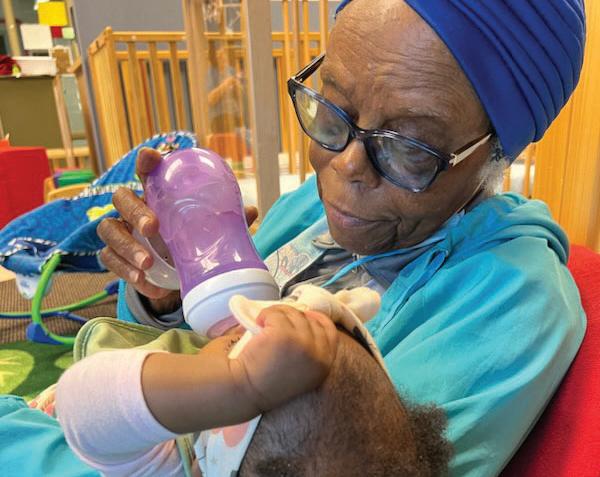
--Lemke continued on page 8.
In April, National Volunteer Month is being celebrated by ENOA and millions of Americans as a way to thank the volunteers, recruit new men, women, and children into these vital programs, and encourage volunteerism throughout the United States.
Learn more about volunteer programs sponsored by ENOA on Page 16.


We want to hear from you.
• Do you have questions about the Eastern Nebraska Office on Aging, its programs, or services?
• Do you have a comment about the agency and how it serves older adults in Douglas, Sarpy, Dodge, Cass, and Washington counties?
• Do you have a story idea for the New Horizons newspaper, or would you like to receive a FREE copy each month?
Please send your questions, comments, and story ideas to:
enoa.info@enoa.org
We appreciate your interest in ENOA and the New Horizons
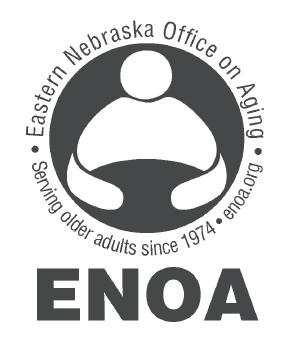
Ombudsman volunteer acts as an advocate for older adults in the OmahaBy Ron Petersen
Rresidents of long-term care facilities often have little or no contact with the outside world. Many feel they lack control over their lives.
A friendly volunteer who visits regularly can be a bright spot in an elderly resident’s day. Many residents are alone and would be very happy to have people who visit on a weekly basis. This may also help ensure they get good care if someone from the community is looking in on them regularly.
“When I visit people every week, I am not family, but they know that I am going to be there every week. They are happy to see you because you are a familiar and friendly face. It’s somebody that knows that I am there for them,” Eastern Nebraska Office on Aging (ENOA) Ombudsman volunteer, Karen Eakins said. “I am there to care about them – you get to know them, their stories and families. You get so close to people and it’s hard to walk away from them.”
The term ombudsman is Scandinavian in origin, which in the United States, has come to mean “advocate.”
The Long-Term Care (LTC) Ombudsman Program was established under federal mandate through the Older Americans’ Act. A LTC Ombudsman is an advocate for the rights and well-being of nursing home and assisted living facility residents.
ENOA’s Ombudsman Program has many services including:
• Education to inform residents, families, facility staff and others on a variety of issues related to aging, long-term care and residents’ rights.
• Information and Referral to empower individuals to resolve concerns and complaints on their own behalf.
• Consultation to make recommendations for protecting the rights of residents and improving their care and quality of life.
• Individual Advocacy to facilitate the resolution of concerns and complaints and to protect the rights of residents.
• Systems Advocacy to identify significant concerns and problematic trends and to advocate for systemic changes that will benefit current and future residents of longterm care facilities.



“I thought maybe someone might wonder just exactly what kind of issues an ombudsman is asked to handle. And really, 90 percent of the time it’s fairly simple things. Anything from securing a haircut reservation next week or asking culinary to never send another Brussels sprout to fixing a broken call light or requesting to move to another room for a variety of reasons,” Eakins said. “When it gets more complicated, such as a conflict with a specific staff member or a disagreement with a particular policy, it can take more time and diplomacy to work out, but an ombudsman also can depend on the ENOA supervisors for additional answers and backup, if needed.”
Along with the Ombudsman Program, Eakins and her husband who is a minister, also volunteer at Thanksgiving Church in Bellevue.
Altogether, Eakins visits anywhere from 80-90 people a week, which may vary in time based on how long she visits with a certain individual.
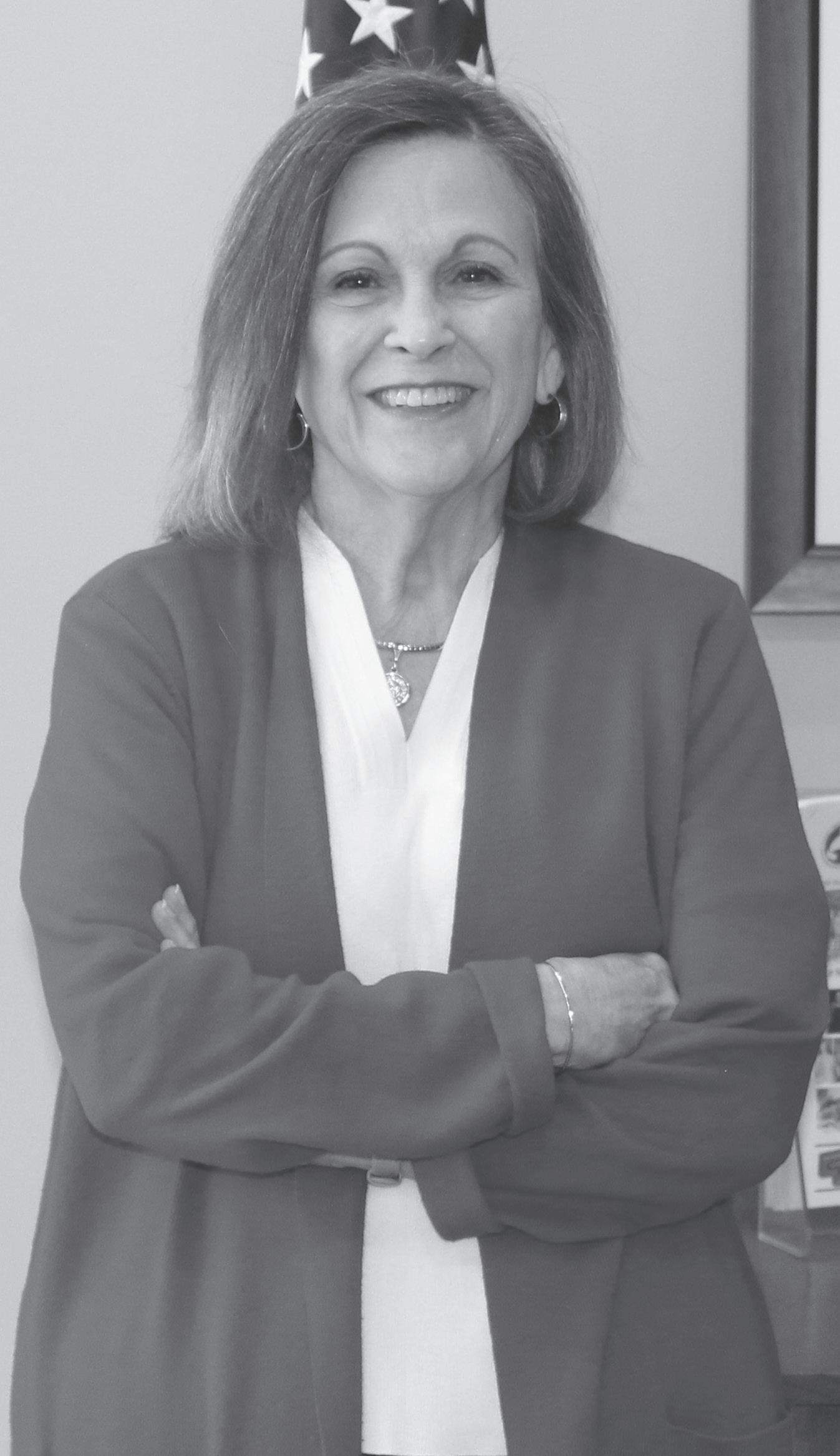
Through the Eastern Nebraska Office on Aging (ENOA) Ombudsman Program, Karen Eakins gets to volunteer and meet older adults in the Omaha community.
“It varies – sometimes people are involved with an activity, they have physical therapy, or they may have guests over. Some people may not talk to you as much, but then there are some that you know are going to want to talk,” she said. “ I am there to advocate – you need to go in there to get something taken care of. I’ll be at a place for four hours or sometimes it might be two. It all depends on the person.”
Anyone can contact the LTC Ombudsman Program to discuss or seek assistance in resolving a problem, concern or complaint impacting one or more residents of a longterm care facility. This includes residents, friends, family members, facility staff, and others. As the resident advocate, however, the LTC Ombudsman always seeks to resolve the concern to the satisfaction of the resident.
The LTC Ombudsman Program can be contacted by phone, in writing, or by email. Nebraska’s LTC Ombudsman Program consists of the State Office and several local LTC Ombudsman Programs, which are located at Area Agencies on Aging and serve specific regions.
“I think everyone who has time off should volunteer. It’s one of the most meaningful things I’ve ever done. You need to think about other people, and you can make their life a little easier and better. People have neat stories and all you have to do is be willing to listen,” Eakins said. “I can’t imagine not volunteering because it’s about being around people and making their lives a little better. If you want to add something to your life that is truly meaningful to you then this is something you should consider. It makes a big difference.”
For more information call 402-444-6536.
Blue zones are areas in the world where people live longer and healthier lives than anywhere else on the planet. These aging populations remains active well into their 80 and 90s, and typically do not suffer the degenerative diseases common in most of the industrialized world.
Blue Zones regions studied are Ikaria, an island in Greece; Okinawa, an island in Japan; the Barbagia region of Sardinia (Italy); Loma Linda, a small city in California, and the Nicoya peninsula in Costa Rica. Curiosity has led one National Geographic scientist to study these regions and find nine common denominators, nine lifestyle factors that all of these areas share.
• Move Naturally. Moving naturally throughout the day — walking, gardening, doing housework — is a core part of the Blue Zones lifestyle.
• Purpose. Knowing why you wake up in the morning makes you healthier, happier, and adds up to seven years of extra life
expectancy.
• Down Shift. Have stress-relieving rituals.
• 80% Rule. Stop eating when your stomachs are 80% full and eat your smallest meal in the early evening.
• Plant Slant. Beans and not meat are the cornerstone of most centenarian diets.
• Wine at 5. Moderate wine consumption is common.
• Belong. Being part of a faith-based community adds years to your life.
• Loved Ones First. Having close and strong family connections.
• Right Tribe. The world’s longest-lived people have close friends and strong social networks.
Submitted by Karen Rehm, Wellness Services Manager, Nebraska Safety Council. To schedule a “Healthier & Happier You” presentation, contact Karen at 402-4832511 ext. 102 or send an email to Krehm@ nesafetycouncil.org.
Stress is a common experience for people of all ages, but it can have unique implications for older adults. April is stress awareness month and here are simple ideas to reducing stress for a healthier you.
For older adults, stress can stem from a variety of sources, including health concerns, financial worries, changes in living situations, loss of loved ones, and social isolation. While stress is a natural response to life’s challenges, prolonged or excessive stress can have serious consequences for physical health, mental well-being, and overall quality of life.
One of the key factors contributing to stress in older adults is the accumulation of life experiences and transitions. Retirement, for example, can bring about significant changes in routine, identity, and social connections, and for some older adults, this new found free time can lead to feelings of purposelessness or a loss of direction, triggering stress and anxiety. Recognizing and addressing stress is crucial for promoting one’s overall well-being and quality of life.
Here are some strategies to support managing stress:
• Regular physical activity: We all know that exercise has been shown to reduce stress and improve

COURTESY PHOTO
Helping others cope with stress through phone calls or video chats can help you and your loved ones feel less lonely or isolated.
mood in people of all ages.
A simple 20-minute walk can increase endorphins, increase circulation, oxygen and muscle tone. Swimming, fishing, golf, strolling through farmer’s markets, gardening and simple home repairs all keep us mobile and can lower stress and improve overall health.
• Fostering social connections: Staying connected with family and friends is crucial for lowering stress. Community groups, outings and giving back such as volunteering can help combat loneliness and provide valuable social support.
• Seeking help from area mental health agencies: Having access to mental health services and support resources including counseling, therapy, or support groups specifically tailored to older adults’ needs can help alleviate many stressors that older
adults face.
• Promoting relaxation techniques: Deep breathing, meditation, or progressive muscle relaxation helps reduce stress and promote relaxation. Finding community centers, park groups and private therapies all help to promote deep relaxation which lowers stress.
• Address financial concerns and other to-dos. We all have that task that we’ve been putting off for another day, but attending to that task and getting it done can create a feeling of accomplishment and takes a load off of the everyday stressors of life.
Being proactive in self-care is paramount to reducing stress in our lives. From accomplishing tasks to spending time with friends and family, to simple exercise and a healthy diet, all help us become more healthier and less stressed and more able to take on the everyday tasks we encounter.
Paula is the Director of Marketing and Development at Florence Home Healthcare Center, Royale Oaks Assisted Living and House of Hope Assisted Living and Memory Care. In her spare time, Paula is rediscovering all the things she did as a child that she can still do like painting, coloring, hiking and bike riding.
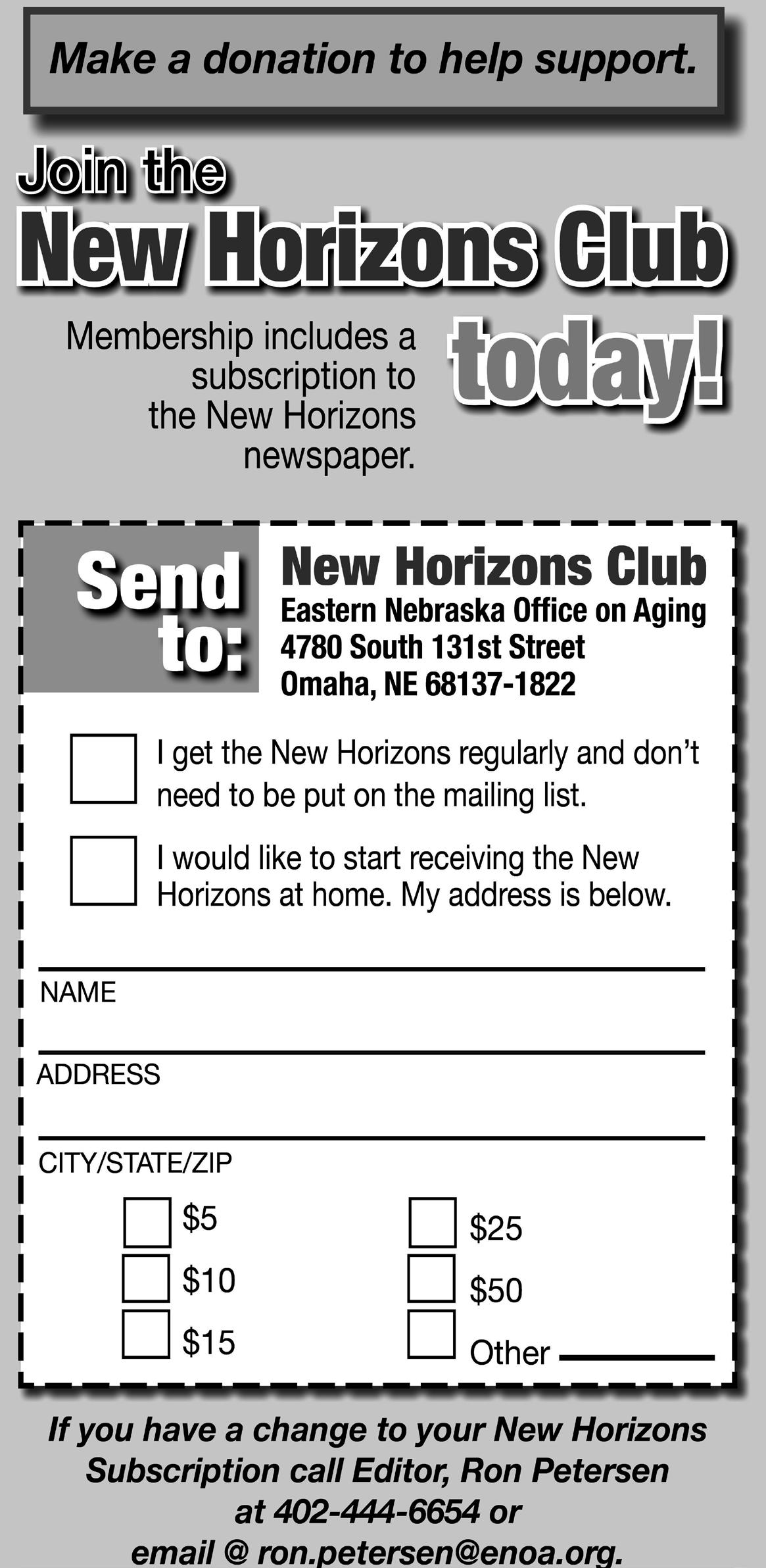
New Horizons is the official publication of the Eastern Nebraska Office on Aging. The paper is distributed free to people over age 60 in Douglas, Sarpy, Dodge, Washington, and Cass counties. Those living outside the five-county region may subscribe for $5 annually. Address all correspondence to: Ron Petersen, Editor, 4780 S. 131st Street, Omaha, NE 68137-1822. Phone 402-444-6654. FAX 402-444-3076.
E-mail: ron.petersen@enoa.org
Advertisements appearing in New Horizons do not imply endorsement of the advertiser by the Eastern Nebraska Office on Aging. However, complaints about advertisers will be reviewed and, if warranted, their advertising discontinued. Display and insert advertising rates available on request. Open rates are commissionable, with discounts for extended runs. Circulation is 9,000 through direct mail .
Editor................................Ron Petersen, 402-444-6654
Ad Mgr................Mitch Laudenback, 402-444-4148
Contributing Writers.........Leo Biga & Andy Bradley
ENOA Board of Governors: Mary Ann Borgeson, Douglas County, chairperson; Don Kelly, Sarpy County, vice-chairperson; Lisa Kramer, Washington County, secretary; Pat Tawney, Dodge County, & John Winkler, Cass County.
The New Horizons and the Eastern Nebraska Office on Aging provide services without regard to race, color, religion, sex, national origin, marital status, disability, or age.
Are you frustrated with the cost of some of the medications you take even though you are enrolled in a Medicare part D drug plan or a Medicare Advantage
plan which includes part D medication coverage?
It’s true.
Some medications that we take are just not covered very well by the part D drug plans. Some may not be covered at all. Many brand name and specialty
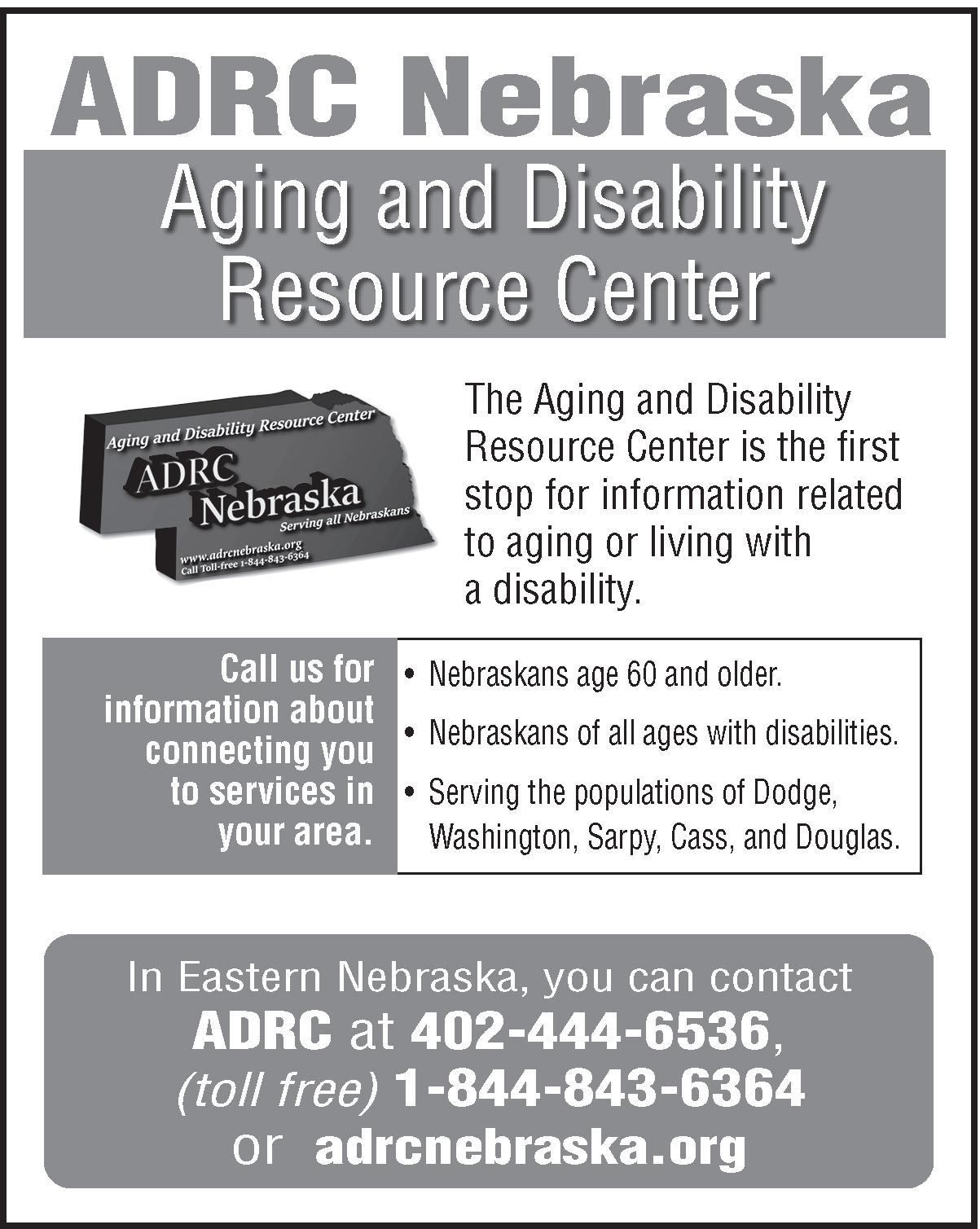
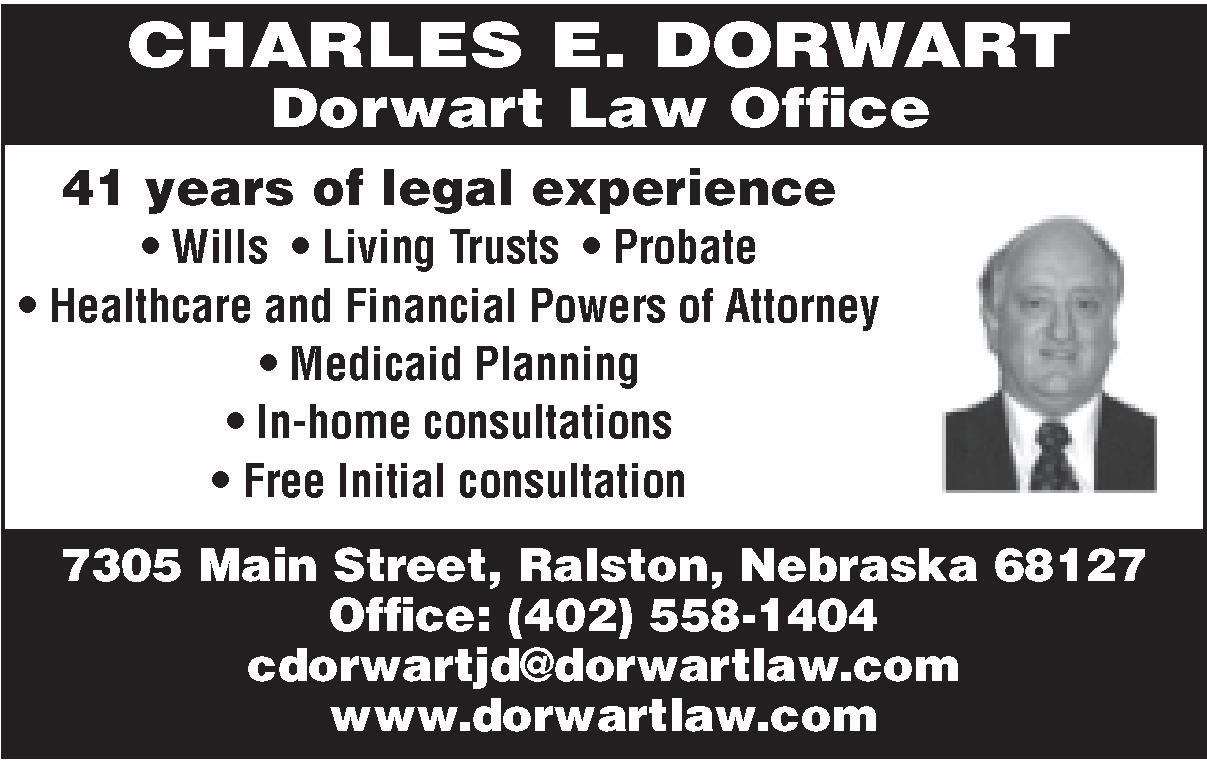

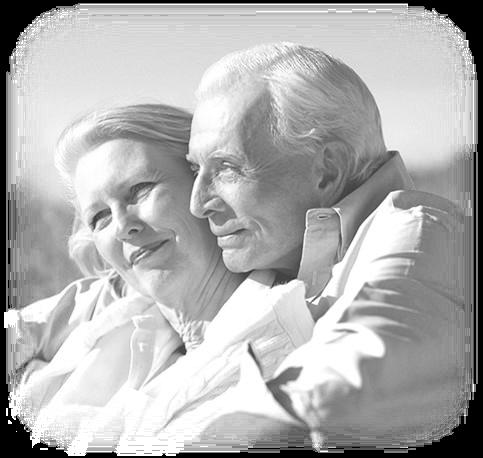


medications can be very pricey for us.
Medicare Advantage plans, including part D drug coverage, and/or part D stand-alone drug plans, in most cases, cannot be changed until the Annual Open Enrollment Period in 2024 which begins October
15 and ends December
7. This does not mean that, as a beneficiary, you are without options to help manage your plan throughout the year.
Each part D plan has an extensive formulary. Most of the common medications we take are included in the plan formulary. Federal law requires plans to include at least two drugs from each class of drug category on its formulary. Most plans cover many more than two options.
Often during the year, we experience changes to medications that are prescribed. When your provider prescribes medications, be sure and ask for generics. This may seem obvious, but there are nuances within your part D plan of which you may not be aware. For example, there may be different prices for generic medications within the same class. Ask your provider if there is more than one generic option which may successfully treat your condition. You can check prices for each suggested medication by calling your pharmacy directly. Ask your provider to prescribe the least expensive option.
Most Part D plans use a tiered formulary. Tiers are a method by which plans classify drugs by cost and determine co-pays and coinsurance amounts. Plans generally have five or sometimes six tiers. Tier 1 and 2 are usually generic tiers, tier 3 is usually for brand name medications and tiers 4, 5, and 6 are generally for specialty medications.
The tier classification used by your part D drug plan can make a difference in the co-pay or coinsurance you have to pay for the medication. If you have an expensive co-pay due to a tier classification, you may be able to request a tier exception. Talk to your pharmacy and ask if your co-pay is high because your prescription has been placed
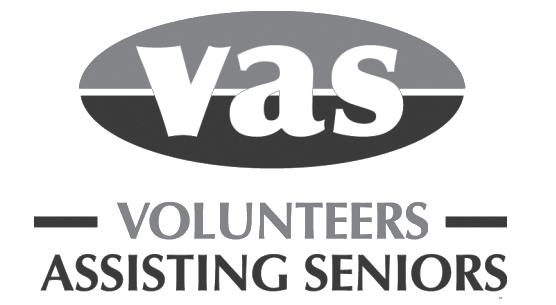
in a higher tier by your plan compared with similar drugs on the formulary. You generally will not be able to request a tier exception if the medication you take is a specialty medication. Contact your part D plan to request a tier exception. Your prescribing physician may be able to provide you with a letter supporting your request.
Your plan must give you a decision within 72 hours of receiving your request.
If you take expensive medications and a tier exception is not a possibility, there are other courses of action for you to investigate. The State of Nebraska and the Federal Government offer assistance programs to help offset some of the costs you may incur. Medicaid, administered by the State of Nebraska, offers two levels of assistance — Full Medicaid and Partial Medicaid. Both levels will assist beneficiaries in not only reducing co-pays for medications but also help offset other healthcare and Medicare costs. Qualification is determined by income and asset guidelines.
Qualification for Full Medicaid provides several benefits including co-pays of $1.55 for generics and $4.60 for brand name medications. These co-pays are for 30-day supplies.
Qualification for either Low Income Subsidy or Partial Medicaid offer several benefits including co-pays of $4.50 for generic medications and $11.20 for brand name medications. These co-pays are for 30day supplies.
If your income is above these guidelines you may have other options. For many medications, Good Rx or Single Care websites will offer coupons which may have better pricing for a medication than your Part D plan offers
It is ok to use a Good Rx or Single Care coupon to purchase your medication and use your Part D plan for all other medications. These coupons are accepted by most pharmacies but be sure to check with your pharmacy for coupon acceptance.
Often your pharmacy can assist you in determining if either Good Rx or Single Care offer less expensive pricing than your Part D plan. Some specialty medications or medications that do not have generic equivalents, are very expensive even using a Part D plan.
If you take one of those medications, investigate Patient Assistance Programs (PAP). PAPs are programs offered by the manufacturer of a medication. These programs require an application and usually documentation from a provider regarding your treatment plan but can offer significant savings to beneficiaries.
Most PAPs are income based but because of the expense of the medications, but the income and asset guidelines are often significantly higher than Medicaid or LIS programs.
Volunteers Assisting Seniors (VAS) can help you investigate the options which may be available to you. Call our office at 402-444-6617 for more information. Remember to follow Volunteers Assisting Seniors on Facebook at “VAS Nebraska.” Information about Medicare and Fraud are included. “Fraud Friday” is a feature providing the latest information about phone and email scams as well as other information about fraud.
And don’t forget our newest feature called Medicare Mailbag. The email address medicare-info@vas-nebraska.org can be used to submit your questions about Medicare.
There is so much in our world that feels heavy and dark. Will our democracy survive? Will climate change be the demise of our earth? There is so much anger and division. How and when will it all end?
I have said before that I believe, on the scale of life, good outweighs the bad. Though this is my belief, it is not always how I feel. Rather than being a victim of my negative moods, it is necessary to stimulate my sense of well-being. I look to role-models in history who have weathered even more difficult times and thrived.
One author described Julian of Norwich who lived during the 14th century Black Plague, an epidemic that killed about half the population of Europe. Julian lived through indescribable tragedy and pain but was able to focus on what was good. She looked for the beauty in everything and celebrated that. She saw the negative but chose to put her attention on the positive.
Based on Julian’s example, the author suggests that we should all be “hunters and gatherers” of goodness. This requires us to shift our attention away from darkness to that which is lifegiving in our daily lives. I tried doing this by making a list of good things I encountered in one day. This caused me to be mindful of small things I normally take for granted or may not even notice.
Here is a short list from my day: The song of a cardinal, my playful dog, an efficient and pleasant checkout clerk, a Mary Oliver poem, golden sunshine, mild temperatures, an inspiring book, a good medical report, an entertaining television show, and restful sleep.
By attending to the good, I energize that part of my
By Nancy Hemesaththinking. I find that in the following days I am also more aware of the good things. Of course, this is not to say every day is a bowl of cherries. However, a potentially terrible day can turn into a not-so-bad day.
Here is a case in point. Recently I had a small car accident that was my fault. My car had damage on the front fender and bumper and a flat tire. The driver I hit had some minor damage to his truck. Of course, I felt terrible and apologized. He was most kind, making sure I was okay. Thankfully he said we did not need to call the police but simply exchange insurance information.
Meanwhile a police officer stopped. He was helpful, made no citations, and simply reminded us to get pictures. I called AAA to change the tire and a young mechanic was there in a few minutes. He was accommodating and efficient as he changed my tire. Because of the kindness of these strangers, I was able to attend my scheduled meeting even though I was somewhat late. My good fortune continued as I bought my new tire and had it changed within a halfhour. After contacting my insurance company, I got the estimate for the repairs.
As I reflect back on this day, I am full of gratitude for all the good I experienced from a kind gentleman who could have been angry, a helpful police officer, a fast and efficient mechanic, a quick turn-around on a new tire, and professional service at the body shop. Had I not noticed all these goods, I would have been weighed down by my
You’re invited to visit the Camelot Friendship Center, 9270 Cady Ave., for regular activities, which include Chair Yoga, card games, Tai Chi, Pinochle, 10 Point Pitch, and bingo.
Grab N Go meals are available.
For more information, contact Barb at 402-444-3091 or barbara.white@cityofomaha.org.
Life can bring on stress for many of us. Finding ways to relieve stress are important to our overall health and wellbeing. Caregivers are not immune to this stress.
Please contact Respite Across the Lifespan at edbennett@unmc.edu or 402-559-5732 to find out more about respite services and to locate resources in your area.
own foolish mistake.
To be “hunters and gathers” of goodness enables us to maintain balance in our lives. It would be naïve to think this erases all the bad things in our world. These still exist. However, focusing on the good has a ripple effect that extends out from us. When we notice and appreciate what is good, we are more likely to return good to others. Let’s start a “hunters and gatherers of good” movement. Try making a list of all that is good for a day or two. Chances are you will continue to notice the good long after the experiment is over.
(Hemesath is the owner of Encore Coaching. She is dedicated to supporting people in their Third Chapter of Life and is available for presentations. Contact her at nanhemesath@gmail. com.)
free for any Christian group, which would like to study prayer, discipleship and beliefs.
Call First United Methodist Church at 402-556-6262 if you wish to receive more information about the list of the studies available.
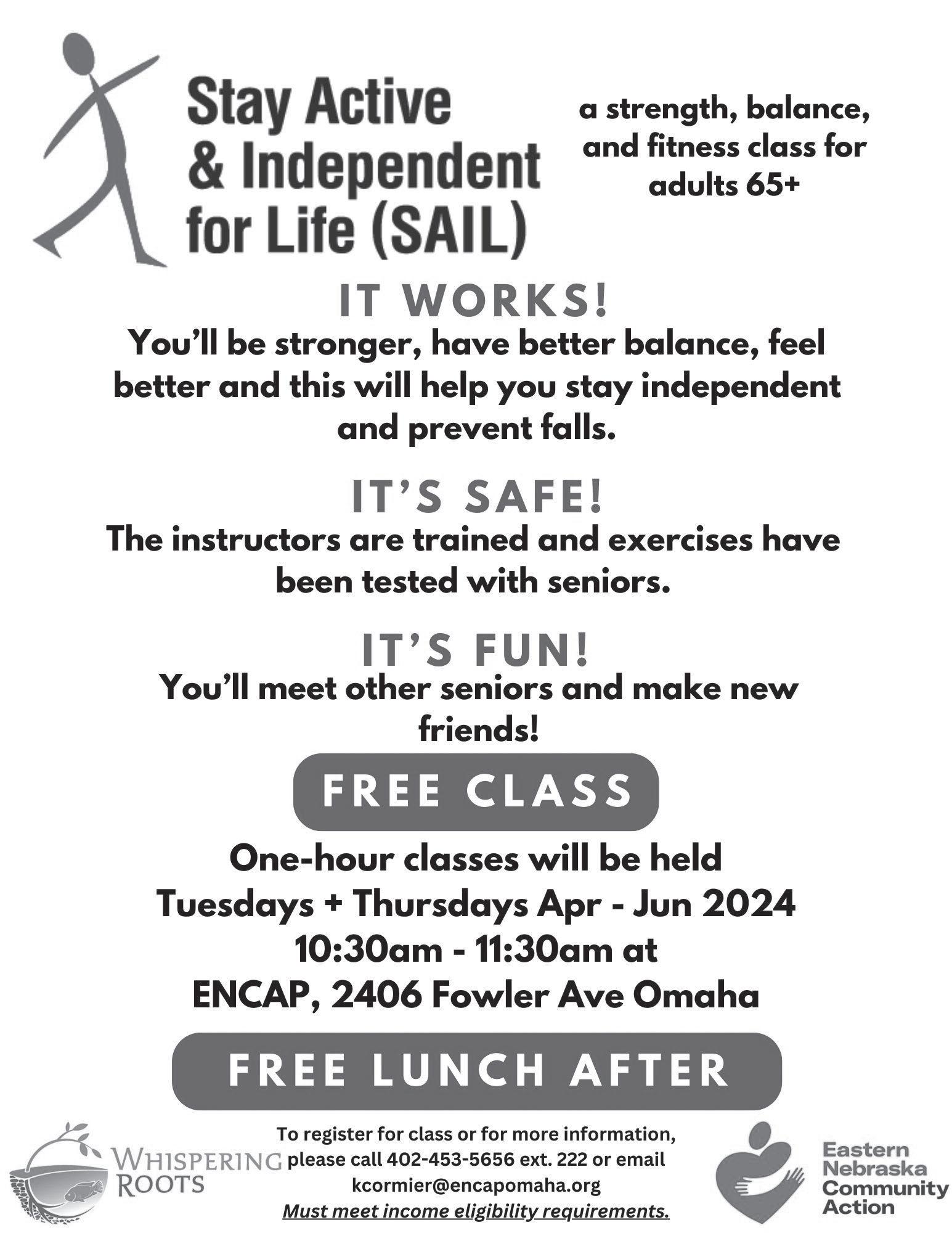

Please see the ad on page 3
$35
Nancy and Ron Kelley
$25
Carole Yanovich
Margaret Edgar
Bernie Drelicharz
$15
Marcia Carlson
$10
Charlene Camenzind
Sheryl Dean-Johnston
$5 Kathleen Koons
The CAPACITY Lab in the Department of Gerontology at UNO is seeking participants for a research study. The purpose of the study is to learn about the effects of the built environment on sleep.
The study will involve a series of in-person surveys about your sleep quality and home environment. This can take up to one hour, but most participants finish in less than 30 minutes.
Do you Qualify? They are looking for people who: Live in Nebraska, are aged 60 years or older, identify as Hispanic/Latino and can speak and understand Spanish.
The CAPACITY Lab in the Department of Gerontology at UNO is also seeking participants for another research study. The purpose of the study is to learn about the effects of the built environment on sleep.
The study will involve a series of online surveys about your environment, sleep, and caregiving support. This can take up to one hour, but most participants finish in less than 30 minutes.
Do you Qualify? They are looking for people who: Live in Nebraska, are aged 19 and older, identify as Nepali, Bhutanese, Burmese, Karen, Myanmarese, or Hindi-speaking, support and care for another South Asian adult, aged 50 and older, and provide care in informal and unpaid relationships. Eligible participants might be a friend, family member, neighbor, or unpaid caregiver to the person they help or support.
You may have to take a screening survey. Compensation is available to those who complete the survey. If you are interested please call 402-554-2951 or email UNOCapacity@unomaha.edu.
Most Medicare drug plans (Medicare drug plans and Medicare Advantage Plans with prescription drug coverage) have their own list of what drugs are covered, called a formulary.
Plans include both brandname prescription drugs and generic drug coverage. The formulary includes at least 2 drugs in the most prescribed categories and classes. This helps make sure that people with different medical conditions can get the prescription drugs they need. All Medicare drug plans generally must cover at least two drugs per drug category, but plans can choose which drugs covered by Part D they will offer.
The formulary might not include your specific drug. However, in most cases, a similar drug should be available. If you or your prescriber (your doctor or other health care provider who’s legally allowed to write prescriptions) believes none of the drugs on your plan’s formulary will work for your condition, you can ask for an exception.
A Medicare drug plan can make some changes to its drug list during the year if it follows guidelines set by Medicare.
Your plan may change its drug list during the year because drug therapies change, new drugs are released, or new medical information becomes available.
Under the standard drug benefit, once you and your plan spend $5,030 combined on drugs (including deductible) in 2024, you’ll pay 25% of the cost for your plan’s covered brandname prescription drugs until your out-of-pocket


spending is $8,000. The gap where you start paying 25% is often referred to as “the donut hole.” The $8,000 cap is referred to as the “catastrophic coverage” level.
Although you’ll start paying 25% of the price for the brand-name drug, almost the full price of the drug will count as out-ofpocket costs to help you get out of the coverage gap. What you pay and what the manufacturer pays (95% of the cost of the drug) will count toward your out-ofpocket spending.
Of the total cost of the drug, the manufacturer pays 70% of the price for you. Then your plan pays 5% of the cost. Together, the manufacturer and plan cover 75% of the cost. You pay 25% of the cost of the drug. There’s also a dispensing fee. Your plan pays 75% of the fee, and you pay 25% of the fee.
What the drug plan pays toward the drug cost (5% of the cost) and dispensing fee (75% of the fee) aren’t counted toward your outof-pocket spending.
As of this writing, the donut hole is going away in 2025 and the cap on prescription costs will be $2,000 annually. This will affect both stand-alone prescription drug plans and Medicare Advantage plans. It’s always important to review the changes in plans every year during the Annual Election Period, October 15 through December 7, but it will be especially important to understand how this new law will affect you personally in 2025.
“Extra Help” is also known as the Part D Low Income Subsidy (LIS.) This is a Medicare program to help people with limited income and resources pay for Medicare drug coverage (Part D) premiums, deductibles, coinsurance, and other costs. Some people qualify for Extra Help automatically, and other people must apply.
You’ll get Extra Help automatically if you get: Full Medicaid coverage,
help from your state paying your Part B premiums (from a Medicare Savings Program,) or Supplemental Security Income (SSI) benefits from Social Security. You’ll get a letter about your Extra Help.
It tells you things like how much you’ll pay, and your new Medicare drug plan, if you don’t have one already.
If you don’t automatically get Extra Help, you can apply for it at https:// secure.ssa.gov/i1020/start or call Social Security at 1-800-772-1213. TTY users can call 1-800-325-0778. You can also contact your local State Health Insurance Assistance Program (SHIP) to get free help applying.
In most cases, to qualify for Extra Help, you must have income and resources below a certain limit. These limits may go up each year.
What counts as resources are money in a checking, savings, or retirement account, stocks, and bonds. States do not count your home, one car, a burial plot, up to $1500 for burial expenses if you have put money aside for that, furniture, other household and personal items. What counts as income is your Social Security and any other income you receive.
If you qualify for extra help, you’ll pay $0 for the drug plan premium, $0 deductible, up to $4.50 for generic drugs, and up to $11.20 for brand name drugs. Once your total drug costs (what both you and your plan pay) reach $8,000, you’ll pay $0 for each covered drug.
Next month we’ll review options for saving money on your Prescription Drugs for those that do not qualify for Medicaid or Extra Help.
Remember to not eat too many donuts and stay away from the “donut hole.”
Mary Hiatt is President of Mary the Medicare Lady (A non-government entity.) She offers Medicare 101 Educational Workshops in the community at no charge. See www.hiattagency.com or contact licensed independent agent mary@ hiattagency.com or call or text 402 672 9449 for more information.
You’re invited to visit the Fremont Friendship Center, 1730 W. 16th St. (Christensen Field). The facility is open Monday through Thursday from 9 a.m. to 3 p.m. and Friday from 9 a.m. to 12:30 p.m.
A meal is served weekdays @ 11:30 a.m. Reservations, which are due by noon the business day prior to the meal the participant wishes to enjoy, can be made by calling 402727-2815. A $4.25 contribution is suggested for the meal. This month’s activities will include:
• April 4: Presentation from Nye @ 10 a.m.
• April 5: National Nebraska Day!
• April 10: Music with the Links @ 10 a.m.
• April 11: Mobile Library @ 9:30 a.m.
• April 11: “Proper Medication Disposal”-ENOA’s intern, Cassidy Kruse @ 10 a.m.
• April 16: AARP Driver’s Safety Class @ 10 a.m.
• April 17: Treats from Nye @ 9:15 a.m.
• April 17: Music with the Julie Couch @ 10:30 a.m.
• April 18: Eco-Fair
• April 23: Presentation on “Stress Awareness” from Naomi Adjel @ 10 a.m.
• April 24: Music with Jerry Stingley @ 10:30 a.m.
• April 25: Humanities of Nebraska presents Joan Wells: “Cattle Trails and Songs of the West” @ 9:45 a.m.
Craft class on Tuesday afternoons @ 1:30 p.m.
Tai Chi offered every Tuesday and Friday from 9:15-10 a.m.
If you can’t stay for lunch with our friends and you currently participate in any activity at the center, you may now order a Grab-n-Go Meal to take home for your lunch. Grabn-Go meals must be reserved the day before by noon and the person ordering the lunch must come in to the center to pick it up at 11 a.m. The number of Grab-n-Go lunches are limited to a first come first serve basis. Suggested donation is $4.25.
For meal reservations and more information, please call Laurie at 402-727-2815.
Christ Community Church will be hosting three events in April.
On April 16, there will be a lunch where people will learn about what conversations are needed and what resources are available to prepare for those conversations. The lunch will take place at Christ Community Church from 11:30 a.m. - 1 p.m. Register by April 12 at 6 p.m.
On April 25, people will get to learn about how they might find it difficult to have conversations about important issues such as their end of life wishes, the financial ramifications of end-of-life choices, long-term living expectations, and even what they expect from their children when they need physical help. The event will take place on April 25 from 6:30-8:30 p.m. in the Christ Community Church chapel.
On April 27, the expo will include a variety of vendors providing services in areas such as choosing residential locations, financial planning for Seniors, elder law for preparing the needed documents to express wishes and give direction in end-of-life circumstances, as well as other services that help families navigate these later years of life well. This event will take place in the gym of Christ Community Church from 10 a.m-2 p.m. Register at https://cccomaha.churchcenter.com/registrations/events/2217691.
You’re invited to visit the Florence Senior Center, 2920 Bondesson St.
At the Florence Senior Center, lunch is served at 11:30 am. A select menu is offered Monday thru Friday. Meal reservations must be made one day in advance. Please call by noon the day before for a meal reservation.
The center hosts activites such as Tai Chi, annual picnics/ special events, bingo, cards, gym & game room access, special guest speakers and socials.
They also provide health and nutrition programs.
For more information, please call Colleen Metz @ 402444-6333.
Do you have some spare time, a
to share, and wish to contribute to your community? Private and non-profit agencies are looking for your help.
Please contact Tia Schoenfeld with the Eastern Nebraska Office on Aging’s Volunteer Connect program at 402-444-6536, ext. 1045 for more information on the following volunteer opportunities:
• American Cancer Society is looking for volunteers. They have different opportunities for volunteering in Hope Lodge Nebraska.
• American Cancer Society Road to Recovery program in Nebraska is looking for additional volunteer drivers, especially in Washington and Dodge Counties to transport cancer patients to and from their cancer treatment related appointments. More information about the program can be found at cancer.org/drive.
• Library Volunteer at Ralston’s Hollis & Helen Baright Public Library.
• The Sarpy County Museum needs volunteers to be a tour guide for 3rd or 4th grade public school tours. Tours will take place in April of 2024, from 9 a.m. to noon. For more information, contact: Kori at 402-292-1880 or museum@sarpymuseum.org.
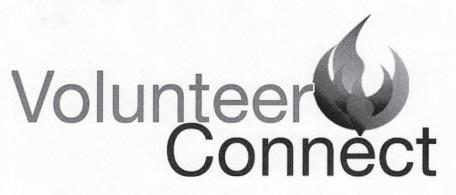
• Food Bank for the Heartland needs volunteers to pack, sort, and stock shelves on Saturday mornings.
• QLI is looking for volunteers to assist residents with fishing to when the weather permits. Fishing Buddies please contact Jen Karolski 402-573-3738 or email jkarolski@qliomaha.com.
• Volunteers Assisting Seniors volunteers are needed to provide nonbiased Medicare Counseling and Homestead Exemption application assistance.

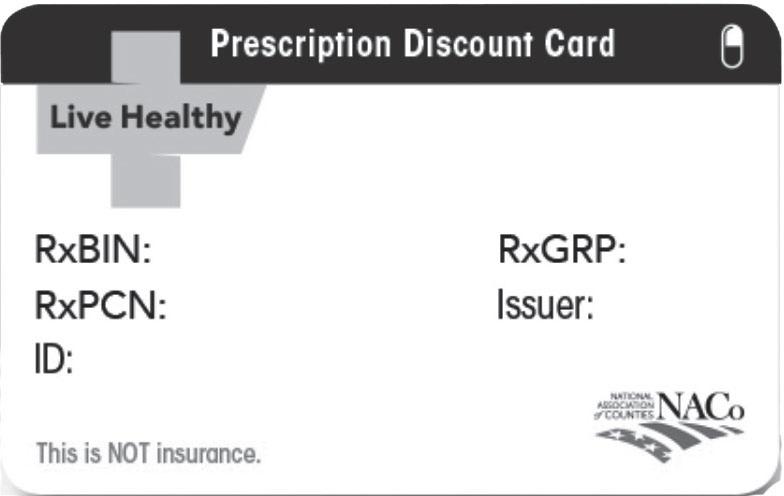
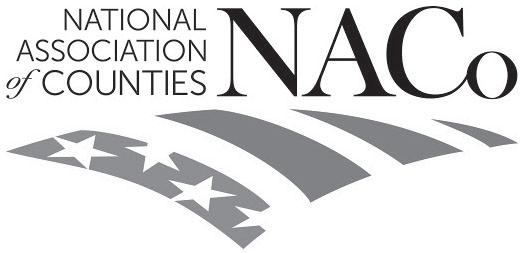
started at 7th and Davenport Streets in Omaha and headed west.
Several railroad stations came and went in Omaha’s early years. Construction of Union Station, which today houses The Durham Museum, commenced on July 29, 1929, on the site of the 1899 station. Rapidly increasing passenger rail traffic convinced Union Pacific of the need for a new building, and it was decided a truly elegant and contemporary structure would best portray the image of the corporation.
The station opened to great fanfare on January 15, 1931, and quickly became one of the busiest stations in the nation.
At its peak, 64 passenger trains and some 10,000 passengers utilized the facility every day. The focal point is the Main Waiting Room, currently the Suzanne and Walter Scott Great Hall. Measuring 160 feet by 72 feet, it is spanned by a 60-foot-high ceiling.
The Hall features a ceiling of sculptured plaster, with painted gold and silver leaf trim, ten cathedral-like plate glass windows, a patterned terrazzo floor, columnettes of blue Belgian marble, and a wainscoting of black Belgian marble.
Six immense chandeliers, 13 feet tall, five feet in diameter, and suspended 20 feet from the ceiling, light the Great Hall.
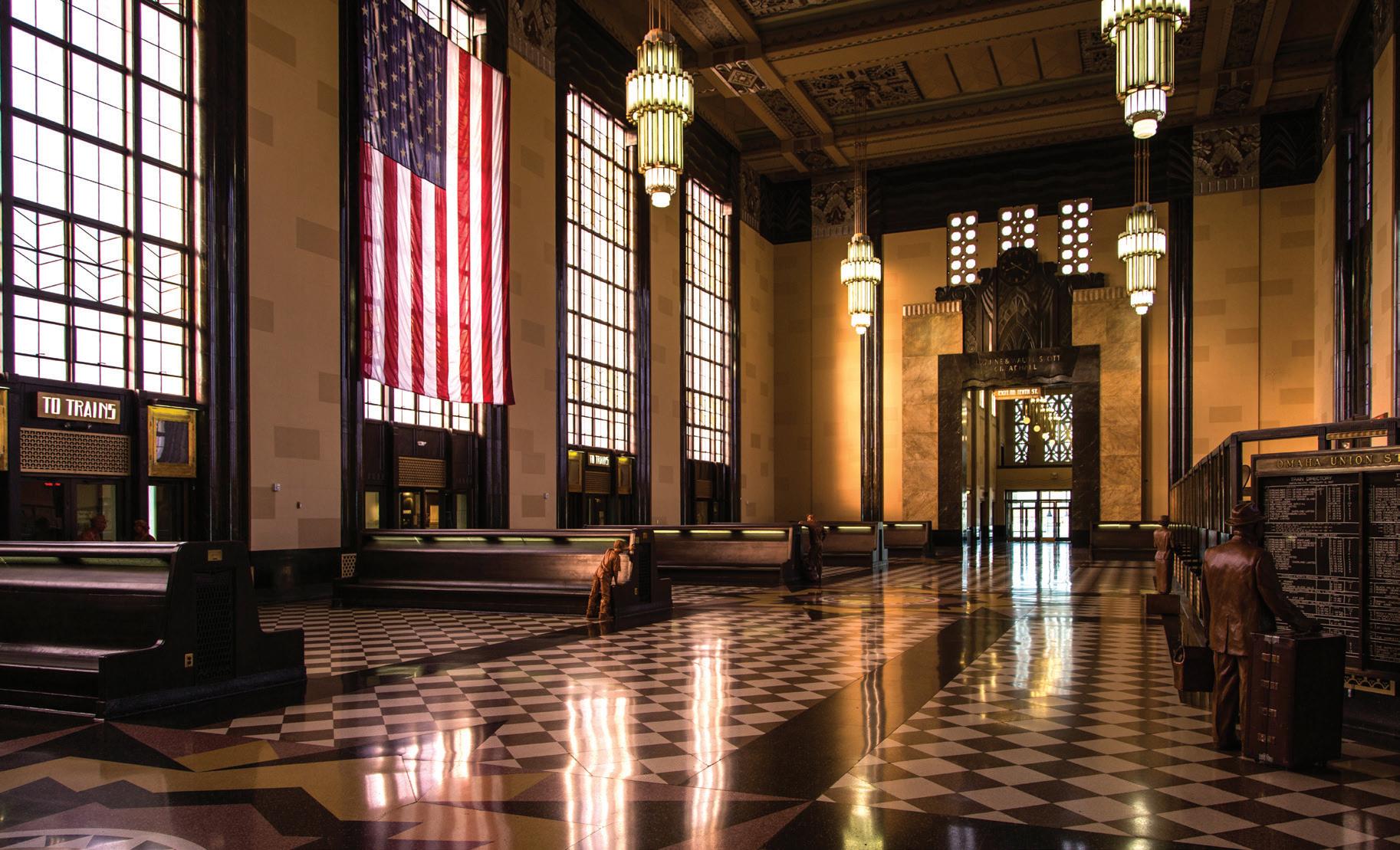
The Durham Museum, located at 801 South 10th St., offers a fascinating look at the history of the Omaha area and offers a broad-range of traveling exhibits covering subjects ranging from history and culture, to science, industry and more through our affiliation with the Smithsonian Institution and strong ties with the Library of Congress, National Archives and the Field Museum.
The station originally boasted thirteen sets of tracks located to the south of the building and served the Union Pacific, Rock Island, Missouri Pacific, Milwaukee, Wabash, Great Western, Illinois Central and Northwestern Railroads. Combining its efforts with the Burlington Depot made Omaha the fourth largest railroad center in the United States.
In 1973, Union Pacific Corporation donated Union Station to the City of Omaha. In 1975 the Western Heritage Museum opened and operated in the existing facility until 1995. That year, Chuck and Margre Durham led the effort to support a major renovation
of the structure that restored the main waiting room, now called the Suzanne and Walter Scott Great Hall, to its original grandeur.
With renovation complete, the facility was renamed the Durham Western Heritage Museum in 1997 and in 2008, the museum was renamed The Durham Museum to better reflect its offerings.
Since 1997 the facility has undergone continued upgrades and preservation. Substantial capital conservation projects have taken place over the past decade to guarantee the long-term viability of the historic structure and ensure its place as a learning center for generations to come.
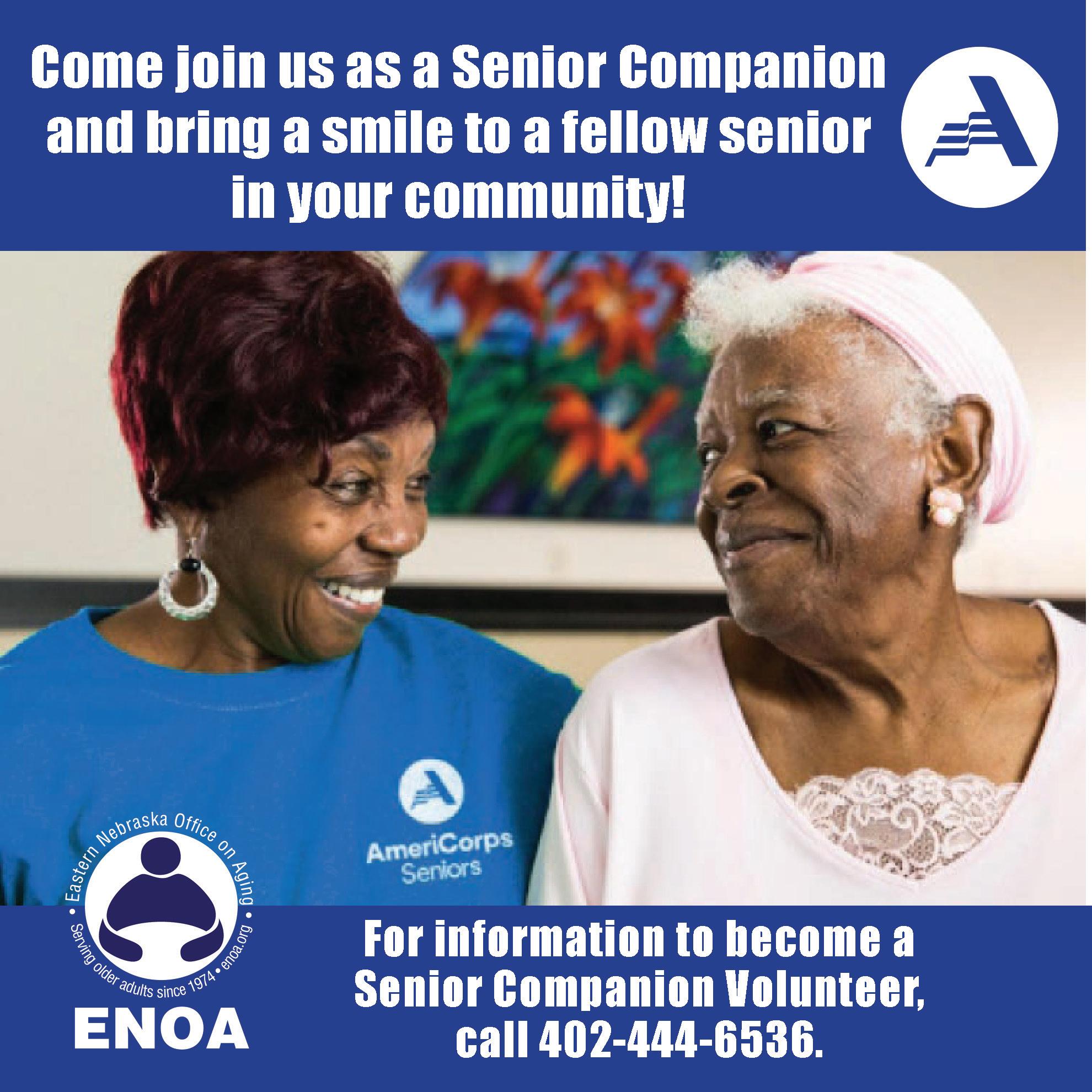
from toymakers including: Hasbro®, Duncan Yo-Yo®, Schleich®, Breyer®, Crayola®, KNEX® (Lincoln Logs®) and many more.
“There is going to be a lot of nostalgia going on through this exhibit. Both kids and adults will love this exhibit,” Myron said. “People will be able to relate with the toys and the whole family should enjoy it.”
When it comes to memberships at The Durham Museum, there is different ways to join in on the fun.
“One of my favorite things to see is when someone new walks into the museum for first time and you can tell they are blown away by the ceiling and architecture,” Myron said. “It’s pretty special to see the history behind the building and location.”
The Durham Museum has several different exhibits that might catch the eye including the “Trans-Mississippi Exposition Gallery,” which includes souvenirs, photographs and other artifacts that recall the extraordinary event that lasted only five months and drew 2.6 million visitors from around the world.
“The exhibit gives people an opportunity to see a vision of the event. People are interested about a city being built within our city,” Myron said. “People are interested in this because they can’t believe it’s right here in Omaha.”
There are dozens of museum collections to check out along with the various features of temporary exhibits.
An exhibit coming to The Durham Museum in March is the called, “Toytopia.”
From March through May, this exhibit will rekindle the wonder and delight of some favorite childhood moments as people can play all day in a world of big toys. Featuring the World’s Largest Etch A Sketch, a life-size Monopoly car and game board, a retro arcade area and a life-size dollhouse, visitors of all ages will be transported into a world of nostalgia, where they can discover the origins of their favorite toys, who made them, and why they continue to be beloved. TOYTOPIA will showcase specialty exhibits
The benefit of a membership includes unlimited admission for 12 months which always includes featured exhibitions, special invitations for exhibition previews and member appreciation events, free admission to the museum’s lecture series, discounts on educational programs including history tours, workshops and youth day camps (summer and winter), and a 10% discount in the Hitchcock Museum Shop, the Soda Fountain and Photo Archive.
“We have four different membership levels including individual, family, patron and add-on features,” Myron said. “Senior membership on the family level is $60, which is good for two adults in the same household along with having up to four grandchildren. It’s a great opportunity to spend time with the family and making memories. We also have the individual senior membership, which is $35. An add-on feature gives you a chance, if you want, to add a friend to the membership, which is an extra $25.”
The Durham Museum is constantly updating their exhibits and bringing in new exhibits, which is why they continue to be a staple in the Omaha community.
“All of the artifacts in the museum have a story to tell,” Myron said. “We have a few new things in the works including hosting a museum insider tour where members get to look at the behind the scenes of the museum artifacts. They get to see some artifacts that aren’t on display. We have a few exhibits coming up that are going to be really fun, which is something we hope people will enjoy.”
For more information about the history of The Durham Museum, or to learn more about their memberships, be sure to visit The Durham Museum website at durhammuseum.org or give them at call at 402-4445071.
--Sullivan continued from page 1.
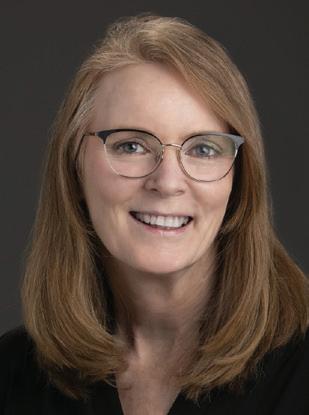
program called Chemistry and Physics on Wheels or CAPOW. On the UNO community engagement webpage the CAPOW program was described as, “A mobile science show of pops, bangs and flashes that travels…exciting overviews of physics, chemistry, and/ or energy resources.”
CAPOW traveled to twenty-seven states and Canada. Dan estimated that they reached over one million children. He continued presenting CAPOW programs after he retired as a professor in 2007 until the COVID Pandemic forced a stop to the program.
Like many in his generation Dan started life in a simple and primitive setting. The farm home in Corning Iowa had no plumbing or electricity when he was born there. He said it was hazardous times, remembering classmates who had injuries like missing fingers or burns from life on working farms at the time. The sadness in his voice as he recalled those friends gave a strong impression he was interested in improving his world even as a young man.
Dan didn’t brag about his performance as a student, but you have to wonder if his teacher at the Adams County rural school could
imagine that Dan would go on to earn not only a B.S. in Secondary Education from Northwest Missouri State University but would also earn an M.A. in General Science from the University of Omaha, and then a PhD in Biochemistry and Nutrition from the University of Nebraska.
When you look at the breadth of his attainments you wonder how a person can accomplish so much in one lifetime. His achievements came from working hard and taking advantage of opportunities. Dan said that he has almost always worked at two different jobs or projects. He began teaching in Iowa in 1958. In 1961 he enrolled in physics and chemistry classes at the University of Omaha (now UNO) and was then recruited to teach there in 1962. While teaching, he completed his master’s degree in general science in 1966. During the 45 years he taught at University of Nebraska Omaha, he was honored multiple times nationally and statewide for academic excellence while still prolifically publishing articles and lecturing at conferences and scientific meetings.
Although his interests within the sciences is varied and he wrote and spoke on multiple topics, Dan mentioned just two projects other than CAPOW that he thought other people might find noteworthy. He worked with Dr. M.J. Carver and Dr. John Copenhaver at the University of Nebraska Medical Center researching topics related
You’re invited to visit the Ralston Senior Center, 7301 Q St., Suite 100 this month for the following:
• April 3, 17 & 24: Bingo @ 12:15 p.m
• April 5, 12, 19 & 26: Double Deck Pinochle or other cards at 9:30 a.m.
• April 10: Board meeting @ 9:30 a.m.
Lunch is catered in on Wednesdays @ 11:30 a.m. A $5.50 contribution is normally suggested for the meal. Reservations are due by noon on Tuesday. Games and bingo will be played after lunch. Contact Darla @ 402-331-1529 for reservations. Obtain an annual Ralston Senior Center membership for $10.
Contact Ron Wilson @ 402-734-3421 for further information.
The Omaha Fire Department’s Public Education and Affairs Department will install free smoke and/or carbon monoxide detectors inside the residences of area homeowners.
To have a free smoke and/or carbon monoxide detector installed inside your home, send your name, address, and telephone number to: Omaha Fire Department Smoke/Carbon Monoxide Requests at 1516 Jackson St. Omaha, Neb. 68102.
For more information, please call 402-444-3560.

to Phenolketonuria (PKU) during the 1960s while he was working on his PhD. The work contributed to successful early identification and treatment which allowed many people with the inherited disorder to minimize or avoid health problems and intellectual disabilities. He was also instrumental in building the first water barometer that
worked without constant adjustment. He said, “… many famous scientists and inventors had attempted to build water barometers for centuries… and failed at the task.”
Dan has lived in Omaha for over 60 years. He said he appreciates the respect and tolerance people generally have for one another in our community.
Dan and his wife both continue to read a few papers every day, trying to “keep up with the World.” He said, “If you are lucky, you learn something new every day.”
His wife Sarah Voss is a Unitarian-Universalist Community Minister and has served as a hospital and Omaha police chaplain. She is also a writer.
Dan Sullivan has done so much directly through his own research and invention to make the world safer than it was when he was a child. He has also influenced others who have then been able to make a difference as well. A person who’s done so much might feel as though they could rest and reflect on what they’ve done, but Dan is not through making his contributions.
“You do the thing that is interesting to you” may be the secret to his successes and his continued interest in engaging the people who see him at Costco each week, especially the children who exit the store calling “Bye, Froggie” (or rabbit, sheep or kitty). He is still the consummate educator, encouraging and listening to people who want to be heard.
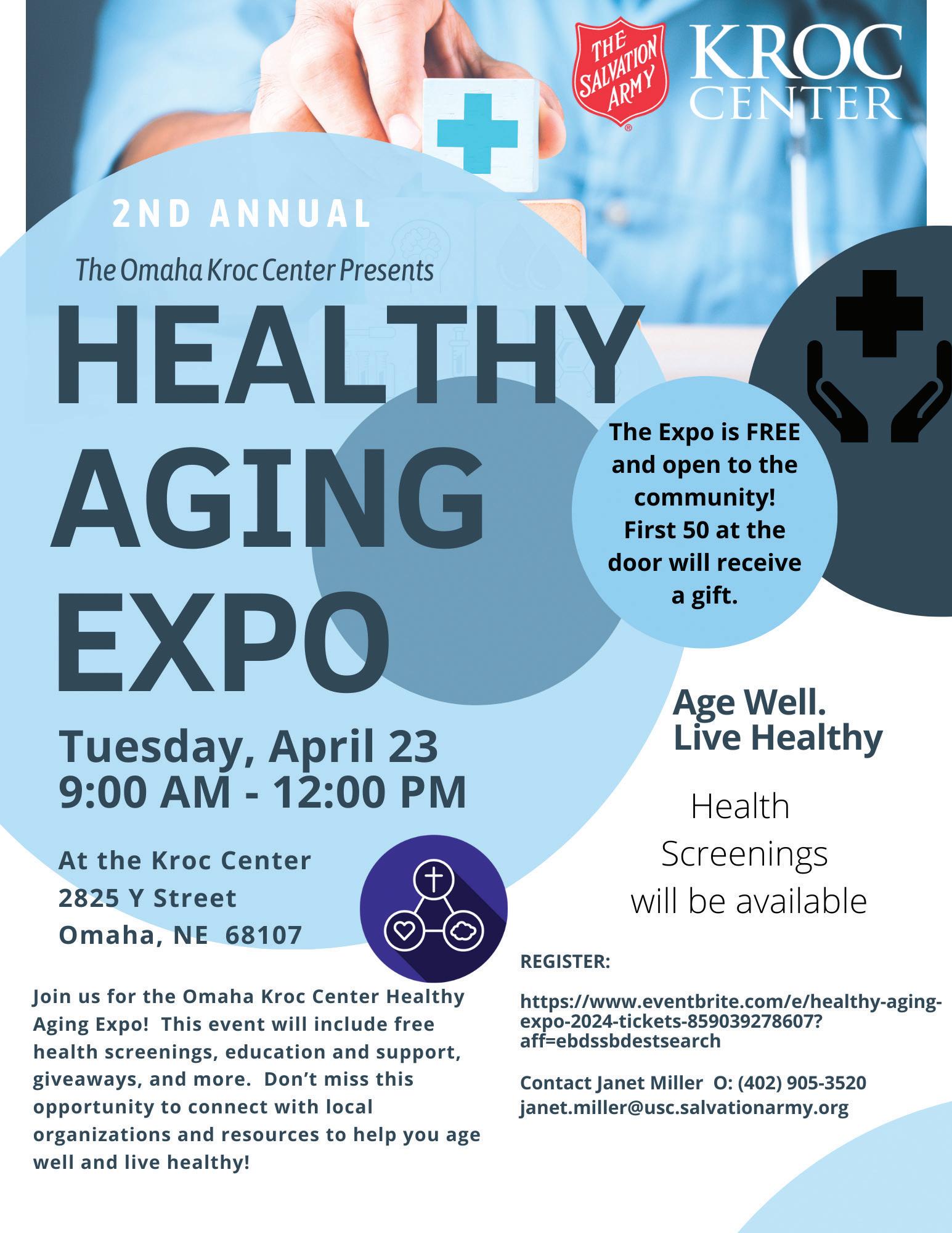
You’re invited to visit the Millard Senior Center at Montclair, 2304 S. 135th Ave., this month for the following:
• April 1: Starting Free Beginner Spanish Class every Monday in April @ 9:30 a.m.
• April 3: Board meeting @ 9:30 a.m.
• April 8: Bunco and treats @ 12:30 p.m.
• April 10: Making sundresses and shorts to be sent to Haiti and to the Orphan Grain Train @ 10 a.m.
• April 16: Archwell presenting Heart and Sleep Issues @ 10:45 a.m.
• April 22: Book Club: Reading “Lady Tan’s Circle of Women” by Lisa See @ 1 p.m.
• April 24: AARP Driver Class @ 9 a.m.
• April 25: VAS (Volunteer Assisting Seniors) is doing a Homestead Exemption Application @ 10 a.m.
Tai Chi on Mondays and Fridays @ 9:30 a.m.
Hand-N-Foot Wednesdays @ 9 a.m.
MahJongg Wednesdays @ 1 p.m.
Chair Volleyball Thursdays @ 9:30 a.m.
Dominoes Thursdays @ 12:30 p.m.
For more information, please call 402-546-1270.
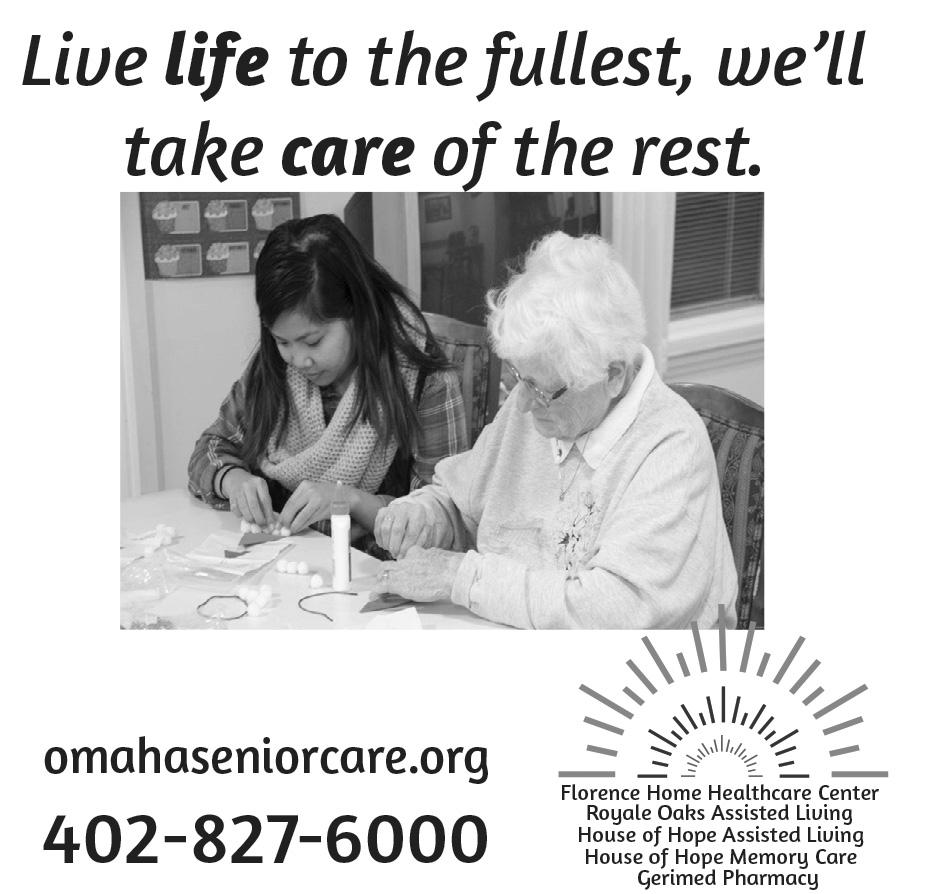
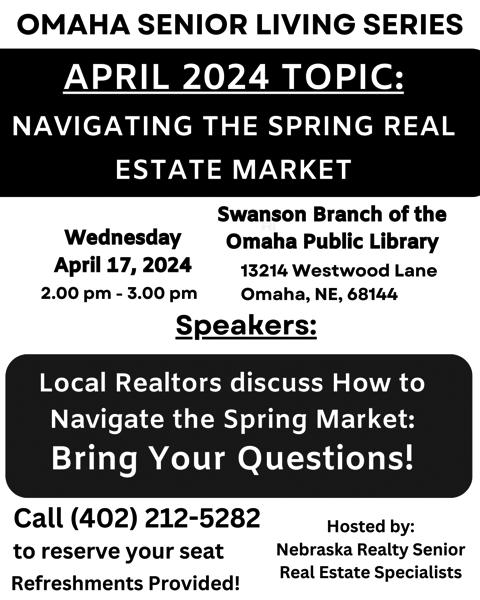
of seniors who are lonely and
The Time is . . . 8:48 p.m. The mechanical robotic voice of my dad’s time machine was the only way – outside of listening to the radio – he could determine the time of day or night.
The mysterious synthesized male voice was hidden deep within a three-inch wooden cubed box that, when activated with a touch of a button, would help orient him to space and time. You see, my dad was nearly blind in 1968, and this simple tool, along with vinyl LP records of his favorite magazines and newspapers, helped keep him alert and engaged.
These basic accommodations were part of the first wave of artificial intelligence (AI) devices intended to help older people remain independent and connected.
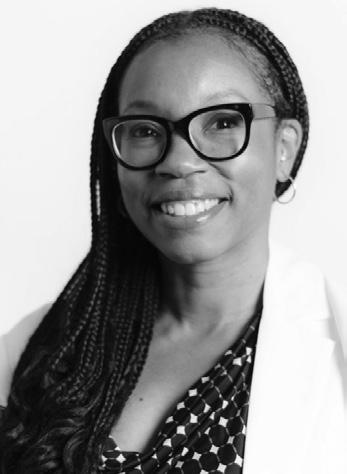
Popular on movie screens at the time was “2001: A Space Odyssey,” featuring the Hal 9000 computer as the main antagonist who commandeers Astronaut Dave’s spacecraft. This fully sentient, friendly – albeit malicious – artificial intelligence character embodied in the late 60s what today many prognosticators warn against – the potential scourge and nightmare of misguided artificial intelligence.
Yet, some futurists also paint a rosier picture of AI. They see a creative blending of robust computer technology and devices that integrate just the right mix of algorithms and clever application (or “app” for short) development to create a healthier, safer and happier world for everyone – including seniors.
This is part of what researchers at the University of Nebraska Medical Center (UNMC) as well as the University of Nebraska Lincoln (UNL) have in mind as they attempt to harness the power of the internet and AI to provide comfort, companionship – even release from pain – to seniors.
AI is technology that enables computers and machines to simulate human intelligence and problem-
solving capabilities, according to IBM.
Researchers, utilizing a common smartphone app, coupled with a small device not so different in looks and function than my dad’s tabletop timepiece, believe they are on the threshold of harnessing these everyday AI technologies for the benefit of these who experience social isolation and pain.
In their recent study, which they hope to publish this spring, an assistant professor of nursing at UNMC, who specializes in pain control, teamed with a professor of communication at the UNL College of Journalism and Mass Communications. Together, they tested a protocol using common AI vehicles that they believe will enhance the lives of many seniors.
By utilizing common features of the Alexa app and the Amazon Echo Dot, users can build routines that can mitigate the sting of isolation, depression and pain interference. Alexa is an AI tool that projects pleasant male or female voices through the Echo Dot to assist with countless routine daily household tasks, from announcing the weather and time of day, to recapping the news, to timing the preparation of your favorite recipes and meals.
But it is what Alexa and Echo can do to also assist older users with daily tasks – like reminders to take their medicines, playing soothing music, offering guided mediations and reciting comforting prayers – that most intrigue Doctors Marcia Shade and Valerie Jones.
Jones has published some of the earliest work in her field about the influence of voice-powered artificial intelligence assistants, and this latest work explores how those assistants influence loneliness and social isolation in aging adults. Their study involved 50 seniors (average age 74) who reported issues with both pain control and social isolation. “We recruited older adults that were independent, living at home, but that self-reported loneliness, social isolation and pain,” said Shade, whose postdoctoral fellowship at the University of Iowa focused on pain management.
Twenty-
five subjects were placed into a group that utilized Alexa and Echo Dot to establish basic daily routines and reminders. Each participated in the same routine protocol.
The other participants were provided with a protocol of highly individualized routines, designed to better address their personal likes, needs and preferences, such as taste in music, topics for guided meditations, religious preferences and exercise regimes.
For example, “if the person experienced knee pain or back pain, the meditation that we selected within the routine focused on that,” said Shade. The sessions would commence with the simple vocal instruction, “Alexa, start my morning routine.”
Researchers provided all participants with comprehensive written and oral instructions about how to set up and utilize their app and Echo Dot.
“We created a user guide specifically for what we were doing. Education is the key,” Shade explained. “We stayed with them until they got comfortable.
“One of the misconceptions and myths is that older adults don’t want to use this technology,” said Shade. “I would beg to differ. I think they are open to it and they just need to learn it – and that goes with anyone.”
Before beginning, participants completed a questionnaire about their personal perceptions and experiences regarding loneliness, pain and depression. The researchers repeated the same questions after the 12-week trial.
The results? Participants in both groups reported improvements in mood and pain interference, but the enhanced group reported the best results. “Overall, the individually tailored group reported less loneliness and less pain interference,” said Shade. “Although both groups benefited.”
Participants enjoyed the interactions with Alexa, but many expressed a desire for an enhanced and far more personalized experience.
“Both groups wanted a different type of engagement,” said Shade, one that is more conversational in nature. Now, Dr. Share wants to develop just that.
When it comes to gardening, no need to “leaf” it to the experts. Whether you’ve been merely contemplating the idea—or are actively planning the perfect plot in your backyard—gardening is a wholesome, joyful and accessible pastime that folks of all ages can enjoy.
Gardening brightens your life. The human behavior of cultivating crops can be traced back 12,000 years to the first permanent settlements. It’s in our nature for a reason—gardening is perhaps the most organic stress reliever, chronic condition controller and mood booster there is. All that time spent out in the sun (don’t forget your sunscreen) gives the gardener a healthy dose of vitamin D, which positively impacts many tissues and major systems in your body.
In addition, gardening is also a great form of exercise. Whether you’re watering a handful of indoor plants or you’re on all fours, weeding a bed of sprouts, it’s an attainable way for just about anyone to fit essential movement into their day.
Gardening helps you age gratefully. Did you know it’s potentially one of the best
activities for individuals with cognitive decline or even just plain forgetfulness?
Studies show that gardening benefits social health, hones cognitive skills and gives the gardener a sense of positive purpose. Though it’s a hobby you can pick up at any age, the earlier you start your planting pilgrimage, the sooner you start reaping the physical, emotional, psychological and perhaps even spiritual benefits that gardening has to offer. Gardening is simple to grow into. Some may have more of a natural affinity—or green thumb—than others, but as long as you’re willing to dedicate time and resources to your personal plot, you’ve got the chops to become a knowledgeable horticulturist in no time. Start with the basics: Sun, water, soil and seeds. Research is key for gardening beginners, but once it all clicks, you’ll have healthy greens, tasty herbs and flourishing flowers in no time. Remember: Patience and persistence is key.
This health tip is brought to you by Tabitha. To learn more, visit us at Tabitha. org or call 308-389-6002.
In 2020, people age 50-plus lost $1.8 billion to cyber-criminals, which was a 61% increase over 2019. Unfortunately, frauds and scams remain a threat to people of all ages, but many specifically target older people.
On April 17 at 1:30 p.m., attend the AARP Nebraska Information Center’s April

program entitled “Protecting Yourself from Fraud and Scams,” to learn more about how to fight fraud and scams. AARP experts will arm you with information on the latest scams we are seeing and provide tips and resources to protect you and your family. If you can spot a scam, you can stop a scam.
Artificial Intelligence continued from page 10.
Within current Alexa parameters, “you can’t have a full-on conversation,” Shade said. Also, the health and fitness activities featured in the current Alexa app are often beyond the capabilities of many seniors. But she is developing an app that can be far better tailored to the needs, preferences and abilities of its users. “I’m working on my own conversational agent that’s specifically for pain. . . I just want to harness this technology,” said Shade, “and tailor it toward the aging.”
She cautioned that these tools are not a replacement for pharmaceutical and clinical interventions. But they can aide in management of emotional and physical pain. “It’s not going to remove the clinician,” Shade stated. “But it is going to help the clinician.”
Until Shade’s new commercial app is unveiled, perhaps a year from now, seniors can download the free Alexa app on their smartphone. The companion device, Amazon Echo Dot, can be purchased through Amazon or commercial retailers like Target, Best Buy and Kohl’s for about $30 and up, depending upon its features.
The app contains a “Routines” section that has an impressive list of options, including simple interventions such as greetings, jokes, stories, and the weather fore-
The Information Center is open on Tuesdays, Wednesdays and Thursdays from 10 a.m. until 4 p.m.
If you are interested in becoming more involved, stop by the Information Center to learn more about the many opportunities to get involved in the community by becoming an AARP Nebraska volunteer.
For more information call the Information Center at 402-916-9309.
cast. More refined interactions and rituals may include a daily stock market report, trivia questions, and games. Popular Alexa “requests” can include, “Alexa, tell me a joke,” or “Alexa, entertain me,” or “Alexa, will it rain today.”
While the participants in the study had personalized help and support to set up and use their Alexa routines, the rest of us are left to go it alone. However, we can utilize the supports provided by the DoSpace Cyber Seniors program. Every Thursday from 9:30 – 12:30, free tech support is available at the temporary DoSpace headquarters at the Abrahams Library, 90th and Fort Streets. The aides will help seniors with any tech-related issues, including how to download, set up and utilize your Alexa app in tandem with the Echo Dot device.
So the far-fetched future envisioned by “2001’s” creator Stanley Kubrick may not be so far-fetched after all. AI is here to stay and will hopefully improve the lives and health and well-being of young and old alike.
So while the future is now, Alexa is beckoning me to delay my future until tomorrow. And unlike most newfangled electronic equipment, my dad’s voice box still works.
“The time is 9 p.m. – you now need to go to bed!”
You’re invited to visit the Intercultural Senior Center (ISC), 5545 Center St.
The Intercultural Senior Center facility – open weekdays from 8 a.m. to 4:30 p.m. – offers programs and activities from 8 a.m. to 2 p.m. from Monday to Friday.
The ISC offers a light breakfast, lunches, crafts, health presentations, exercise, language classes, citizenship, technology, gardening and more. The ISC also offers mental health support, medical assistance programs, and a food pantry service that can be delivered to your home.
Do you need help with your benefits and Medicaid coordination? Their Our Senior Advocate Team (Case Management Services) can help.
This month, the ISC will host Movie Matinee. Every Second and fourth Wednesday of the month, a different film is screened at 2 p.m. Here are the titles of the films:
• April 10th - The Great Escape
• April 24th - When Harry Met Sally
Enjoy coffee and chat every Friday between 2 p.m. and 4 p.m.
Lunch reservations are due by 9 a.m. A voluntary contribution is suggested for the meal. Their dining room will have lunch options available at 11:30 a.m., and after lunch, you can continue to practice your technology skills, attend crafts, and enjoy other fun activities.
Monthly food pantries are available for adults ages 50 and older.
For more information, please call 402-444-6529 or visit the ISC website at interculturalseniorcenter.org.
Legal Aid of Nebraska operates a free telephone access line for Nebraskans ages 60 and older.
Information is offered to help the state’s older men and women with questions on topics like bankruptcy, homestead exemptions, powers of attorney, Medicare, Medicaid, and Section 8 housing.
The number for the Elder Access Line is 402-827-5656 in Omaha and 1-800-527-7249 statewide.
This service is available to Nebraskans ages 60 and older regardless of income, race, or ethnicity.
The Legal Aid of Nebraska hours of operation are 9 a.m. to noon and 1 to 3 p.m. Monday through Thursday, and 9 a.m. to noon on Friday.
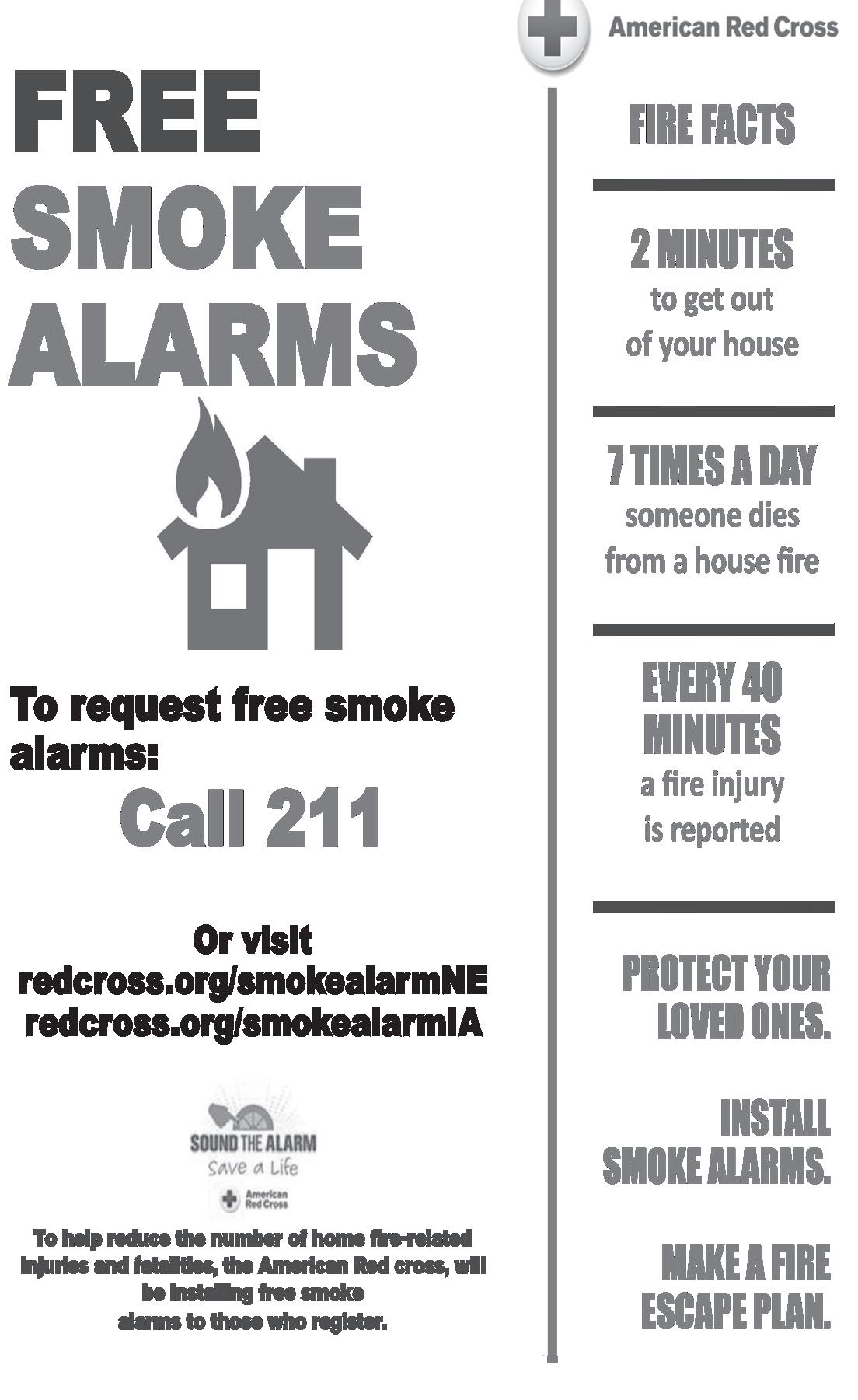
This guide aims to simplify the process of obtaining CPAP therapy for sleep apnea, a condition affecting your breathing during sleep and impacting your health. Sleep apnea, a disorder characterized by pauses in breathing during sleep, can significantly impact one’s health and quality of life. Fortunately, Continuous Positive Airway Pressure (CPAP) machines serve as an effective treatment, ensuring uninterrupted airflow during sleep.
Sleep apnea presents a significant health concern due to its impact on the upper airway and the body’s response. During sleep, the muscles supporting the throat naturally relax. In individuals with sleep apnea, however, these relaxed muscles cause a narrowing of the upper airway.
This narrowing can become so severe that the airway completely collapses, leading to episodes where breathing pauses (apneas) occur.
The consequence of these apneas is two-fold. Firstly, oxygen flow to the brain and body is disrupted. The brain, deprived of its vital oxygen supply, briefly awakens the sleeper to resume breathing. This cycle of apneas and micro-awakenings disrupts sleep quality, preventing individuals from reaching the deep sleep stages necessary for proper restoration. Secondly, the body experiences stress due to the strain of maintaining oxygen levels because of interrupted breathing.
Chronic sleep deprivation from sleep apnea extends far beyond just daytime fatigue. The repeated stress on the body from these breathing pauses can lead to a cascade of negative health effects.
Over time, the cardiovascular system is burdened as blood pressure rises in response to the body’s attempt to compensate for the oxygen shortage. This increased strain can contribute to the development of heart disease and stroke.
Furthermore, the lack of quality sleep and the associated hormonal imbalances can lead to an increased risk of depression.
Therefore, understanding sleep apnea goes beyond simply recognizing its snoring symptoms. It’s crucial to acknowledge the potential for serious health consequences and seek medical evaluation if you suspect you might be experiencing this condition.
CPAP THERAPY: A BREATH OF FRESH AIR FOR SLEEP APNEA SUFFERERS
CPAP (Continuous Positive Airway Pressure) therapy tackles sleep apnea at its core – the collapsed airway. The machine functions like a miniature air pump, delivering a constant and gentle stream of air through a mask worn during sleep. This pressurized air acts like a splint, gently holding the airway open.
The CPAP combats the airway collapse. The pressurized air delivered by the CPAP machine prevents the relaxed throat muscles from constricting the airway. This ensures a patent (open) airway throughout the night, eliminating the apneas and ensuring a continuous flow of oxygen. The brain regains control. With the airway stabilized and unobstructed, the brain no longer needs to trigger micro-awakenings to resume breathing. This allows individuals to experience uninterrupted sleep, reaching deeper sleep stages crucial for physical and mental rejuvenation.
CPAP use has many benefits. Effective CPAP therapy goes beyond simply addressing the immediate symptoms of sleep apnea. It boosts sleep quality. By preventing apneas and promoting uninterrupted sleep, CPAP therapy significantly enhances the depth and length of sleep thus the quality. Individuals report feeling more rested and experiencing a deeper, more restorative sleep. It also enhances energy levels. With proper sleep, the body has the opportunity to recharge, leading to increased energy levels throughout the day. Individuals report feeling less fatigued and experiencing a greater sense of vitality.
The restoration of a good sleep contributes to sharper focus and cognitive function. Chronic sleep deprivation from sleep apnea can significantly impair cognitive function. CPAP therapy,
by promoting quality sleep, improves focus, concentration, memory, and overall cognitive performance.
CPAP therapy reduces the risk of obstructive sleep apnea health complications. The long-term consequences of untreated sleep apnea are concerning.
CPAP use, by addressing the root cause of the condition, helps reduce the risk of developing associated health problems like high blood pressure, heart disease, stroke, and even depression.
In addition, CPAP therapy is a non-invasive treatment. Unlike surgery, it doesn’t require any procedures and relies solely on the gentle application of air pressure. It is relatively comfortable. While initial adjustment to the mask and air pressure might take some time, most individuals find CPAP therapy to be a comfortable and well-tolerated treatment option in the long run.
It is important to remember that consistent use of CPAP therapy is vital to reap its full benefits.
1. Consulting Your Doctor.
2. Sleep Study: Diagnosis and Data Collection: Polysomnography and Home Sleep Apnea Testing (HSAT).
3. Prescription and Meeting Requirements: Doctor’s Prescription.
4. Insurance Coverage: Prior Authorization (PA).
INITIATION: A SMOOTH TRANSITION
Once you’ve met the requirements and received your CPAP machine, navigating its use becomes crucial.
A trained staff member will guide you through the initial setup process. This includes familiarizing you with the machine’s components, demonstrating how to properly fit the mask, and explaining operational controls. They will also answer any questions you may have regarding the machine’s functions, data display (if applicable), and proper cleaning procedures.
Supply Replenishment: CPAP therapy relies on regular replacement of filters, masks, and other supplies to maintain hygiene and the machine’s effectiveness.
Volunteering is often referred to as the selfless act of giving time and skills to help others without expecting anything in return, is the very soul of compassion and community building. In a world where individualism often takes center stage, volunteering stands as a testament to the human spirit’s capacity for empathy and collective well-being.
This is a feeling those who volunteer through the Ignatian Volunteer Corps (IVC), can feel in the Omaha region.
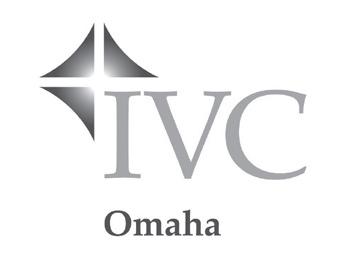
“Volunteering feeds their soul, it gives them a sense of purpose and it helps them grow,” Ignation Volunteer Corps Omaha Regional Director, Joanne Fisher said.
Since 1995, the IVC have provided mature men and women the opportunity to serve the needs of people who are poor, to work for a more just society, and to grow deeper in Christian faith by reflecting and pray-
ing in the Ignatian tradition.
Omaha is one of the 20 regions across the country, plus a virtual region, that have been an ideal place for the IVC to be located.
“We currently have 28 members in our region — we focus on 50 and older adults, who are interested in continuing and growing in their faith,” Fisher said. “We are more than a volunteer organization — our members are committed to not only growing themselves, but being impacted by those people they are serving.”
Volunteers of IVC’s service corps, who are recruited and supported by Fisher, typically serve two days a week for nine months a year, and many volunteers renew that commitment year after year.
Volunteers spend their time in local service sites that are identified as IVC partner organizations. These community organizations work directly with people who are materially poor or in organizations that address the structures that affect people who are poor.
Corps members tutor,
You’re invited to visit the Corrigan Senior Center, 3819 X St. this month for a variety of activities:
• April 1: “Hoppy” Easter Party @ 11 a.m.
• April 2: AARP Driving Course @ 9 a.m.
• April 8: Council Meeting @ 10:45 a.m.
• April 9: Monthly breakfast @ 9 a.m.
• April 18: Financial Fraud and Scam Presentation by DHHS Finance Department @ 11 a.m.
• April 22: Prize Bingo @ 12:30 p.m.
The Corrigan Senior Center is open weekdays from 8 a.m. until 3:30 p.m. Lunch is served at noon. A $4.25 donation is suggested for the meal.
BINGOCIZE is a new program Corrigan has implemented which focuses on fall prevention and nutrition education all while having fun playing BINGO.
Bingo is played every Monday and Thursday at 12:30 p.m.
Cards and puzzles is played every day of the week at 8 a.m.
Happy Hands meets on Tuesdays at 9 a.m. to work on crocheting, knitting, and macramé projects. Call 402-731-7210 for more information.
The Lifestyle Heath Alliance is sponsoring a community event on Dr. Michael Greger’s presentation: How Not to Age: The Scientific Approach to Getting Healthier as You Get Older on April 22 at 7 p.m. at the Omaha Community Playhouse, 6915 Cass St. Participants will have an opportunity to learn about important health benefits of whole food plant-based nutrition from Dr. Greger who is arguably the most wellknown physician and researcher around.
There will also be a Q&A session with Dr. Greger along with an opportunity to participate in an optional book signing with Dr. Greger.
For more information, go to healthyforalifetime.org.
advance literacy skills, help find jobs and housing, provide healthcare and companionship, and work to overcome poverty. They may also engage in counseling, administrative tasks, fund-raising, and more. Care is taken in matching a candidate’s talents to an organization’s needs, but often placed corps members discover and develop new skills when they choose to work at projects unrelated to their former job experience.
“We provide professionals that want to give back in some way,” Fisher said. “We offer expertise, plus more.”
IVC’s corps members are guided through a reflection process based on The Spiri tual Exercises of St. Ignatius Loyola. This process helps them discover the deeper meaning of the work they do and to see Christ more clearly as they labor among their brothers and sisters who are poor.
Reflecting and praying in the Ignatian tradition — in dividually and communally
— deepens the experience of service and is a unique feature of the Ignatian Volunteer Corps and a key reason that corps members return to IVC year after year and become so committed to the program and their service site. Relying on volunteers have become a key component in the way the IVC operates.
“It’s my job to facilitate that match between the person offering their service and skills to see where they can make impact for a specific nonprofit,” Fisher said. “Often the volunteers
plus we’re always looking to grow.”
The volunteers make up the heart of the IVC, and while it’s through the Jesuit mission, people are still able to make a positive impact in the community.
“We are unique in that we not only feed their spiritual soul, but we feed their sense of purpose,” Fisher said. “It’s all about that sense of purpose and fulfillment that they get, which is huge. God created use to serve other people.”
For more information call
Joanne Fisher at 402-215-
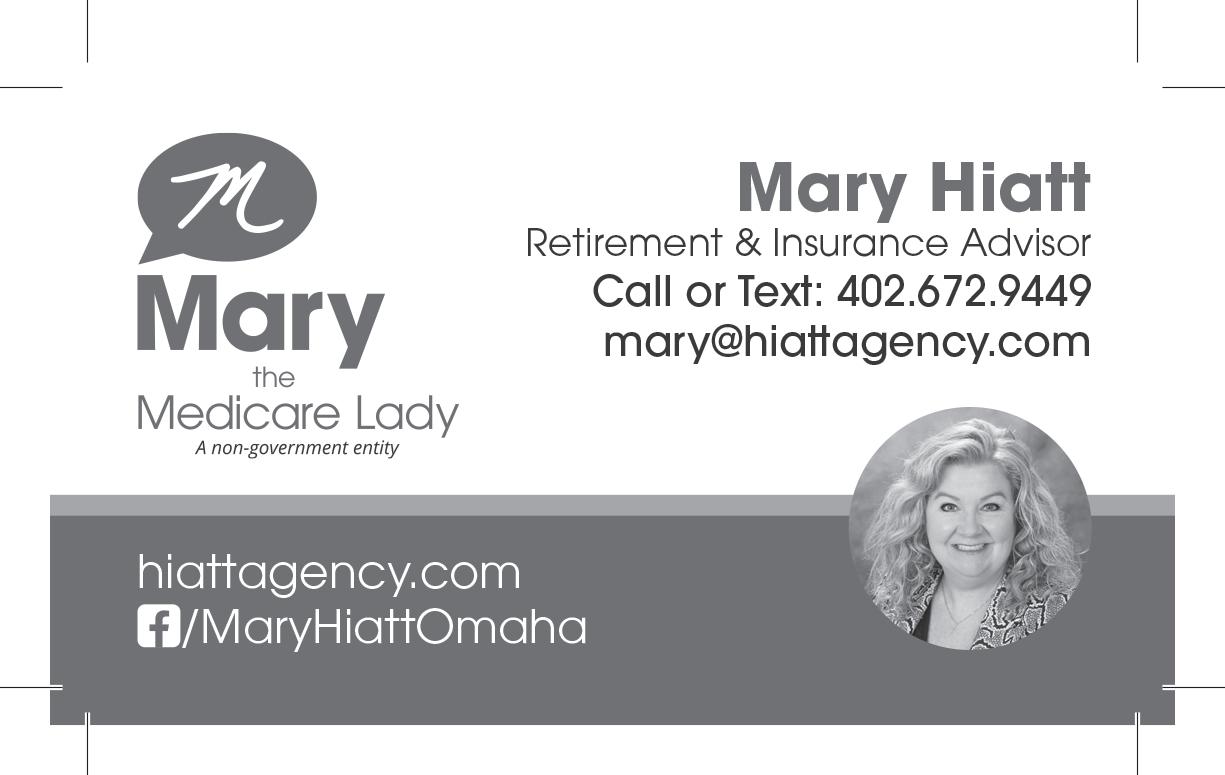
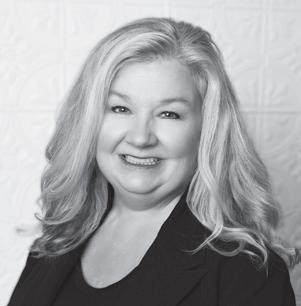

No More Empty Pots is one of 14 partners to organize the new Heartland Regional Food Business Center serving Iowa, Kansas, Nebraska, Oklahoma, and northwest Arkansas.
The Heartland Food Business Center help farm and food entrepreneurs build the businesses and supply chain connections needed to meet growing demand for local and regionally produced food. This includes a $11 million Business Builder Subaward grant program.
The Heartland Food Business Center is one of 12 established across the nation,
with funding from the U.S. Department of Agriculture, to support development of a more resilient, diverse, and competitive food system. In addition to 14 key partners, more than a dozen collaborating partners are part of the Heartland Food Business Center’s work to build a more robust and responsive support system for farm and food businesses in local and regional markets.
No More Empty Pots is a 501(c)(3) nonprofit organization whose mission is to connect individuals and
groups to improve self-sufficiency, regional food security and economic resilience of urban and rural communities through advocacy and action.
“No More Empty Pots is excited to continue the engaging work of strengthening our regional food system with local farmers, urban and rural communities, and the partners that make up the Heartland Regional Foods Business Center,” said Nancy Williams, CEO/ Co-Founder of No More Empty Pots. “Collaborations that ensure equitable access to fresh local produce
while deepening economic resilience for long term self-sufficiency and sustainability of our neighbors are cornerstones of action for our organization.”
The Heartland Food Business Center’s purpose is to connect and strengthen small, mid-size, and diverse farm and food businesses, as well as local and regional food sector initiatives. It aims to grow the farm and food enterprises, markets, and community connections needed to make local food an everyday, easy choice.
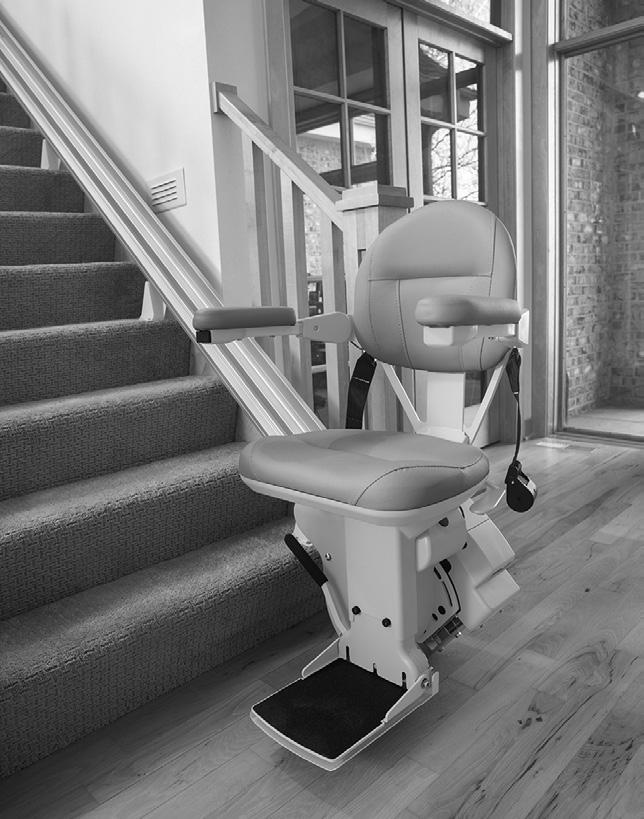
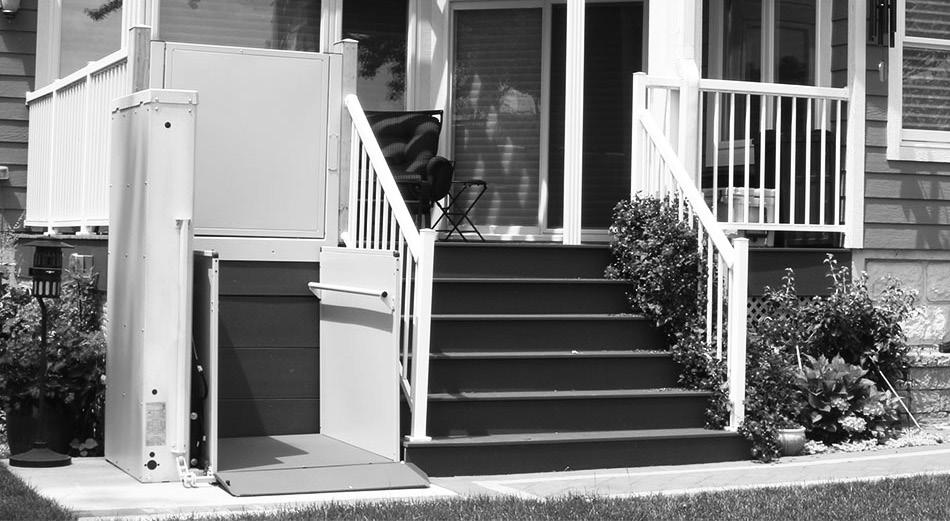
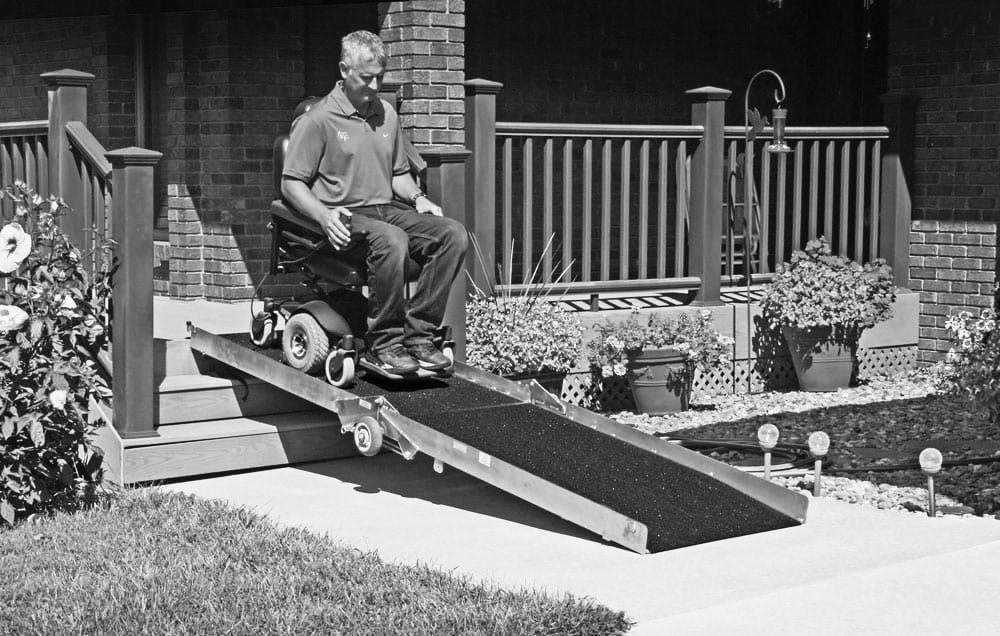

The growing five-state resource network will provide businesses with:
Technical Assistance: Business training and counseling. Planning and mentorship. Help accessing financing and other support.
Business counselors at partner organizations will work together, and with other resource providers across the five states, to reach and support underserved and underrepresented entrepreneurs, from small rural and urban farms to people of color and indigenous and immigrant communities.
Coordination: Connection to other needed businesses, such as distributors. Connection to local, state, and national resources.
Partners will assist entrepreneurs locally while also working together regionally to identify and address challenges, such as gaps in local food storage capacity or distribution services. A regionwide asset mapping process will further this work to connect and advance resources and initiatives.
Capacity Building: Grant funding to support farm and food entrepreneurs in making next-step investments. Business assistance to local and regional food sector initiatives. The Heartland Regional Food Center will dedicate $11 million of its total, 4-year USDA funding of $25 million to Business Builder Subawards designed to help on-the-ground entrepreneurs move forward in their local food business journey.
Building local and regional food supply chains is critical for long term growth and the sustainability not only of our region but the country, said Steve Schulz, Associate Professor in the Department of Management at the University of Nebraska at Omaha. His team will support the Heartland Food Business Center’s work to analyze and assist in developing local and regional food supply chain logistics.
“We’ve seen how vulnerable our supply chains can be since the pandemic; the school lunch program being shut down, restaurants closing, empty grocery shelves …,” he said. Adding more food and farm businesses and building shorter, local and regional supply chain links will build resilience and strengthen communities, he said.
Caring for a loved one is difficult, and the challenges are amplified during a pandemic. Join Flaherty Senior Consulting for a series of Solutions Group gatherings that will address the questions and challenges caregivers face.
Solutions Groups provide opportunities for caregivers to learn how to deal with various issues, obtain skills and knowledge, engage in discussions, and interact with others in similar circumstances.
Upcoming meeting dates and locations are:
• May 14, July 9, Sept. 10, Nov. 12
St. Vincent de Paul Church 14330 Eagle Run Dr.
• April 17, June 19, Aug. 21, Oct. 16, Dec. 18
St. Timothy Lutheran Church 93rd and Dodge streets
• April 4, June 6, Aug. 1, Oct. 3, Dec. 5
The Servite Center of Compassion 72nd St. and Ames Cr.
• May 18, July 27, Sept. 28, Nov. 30
Faith Westwood United Methodist Church 4814 Oaks Ln.
The Solutions Groups are facilitated by Nancy Flaherty, MS, CDP, president of Flaherty Senior Consulting. She has extensive experience working with family caregivers and caregiver groups.
Registration is required to attend each gathering. Masks are mandatory and social distancing will be observed. Visit flahertyconsulting.net or call 402-312-9324 for more information.
Flaherty also provides private consultations with family caregivers to help them develop individual plans for their loved ones.
For information on private consultations, Solutions Group meeting times, and/or to register to attend a Solutions Group, email Nancy at flahertyconsulting@cox.net or call/text her at 402-312-9324.
You’re invited to visit the La Vista Senior Center, located at 8116 Park View Blvd. The facility provides activity programs and meals Monday through Friday from 8 a.m. to 5 p.m. Please call 402-331-3455 for general Community Center hours.
Meals are served weekdays at 11:30 a.m. Reservations are due by noon the business day prior to the date the participant wishes to attend and can be made by calling 402331-3455.
A $4.25 contribution is suggested for the meal if you are age 60 and older. If you are under age 60, then the meal cost is $11.
In addition to meals being served daily, the La Vista Senior Center offers a variety of activities such as: Bingo, outings, cooking classes, computer classes, movies with popcorn, arts and crafts, a variety of card games, quilting, tai chi, exercise classes, musical entertainment and various parties.
Please visit our website at cityoflavista.org/seniors for updated information or call 402-331-3455.
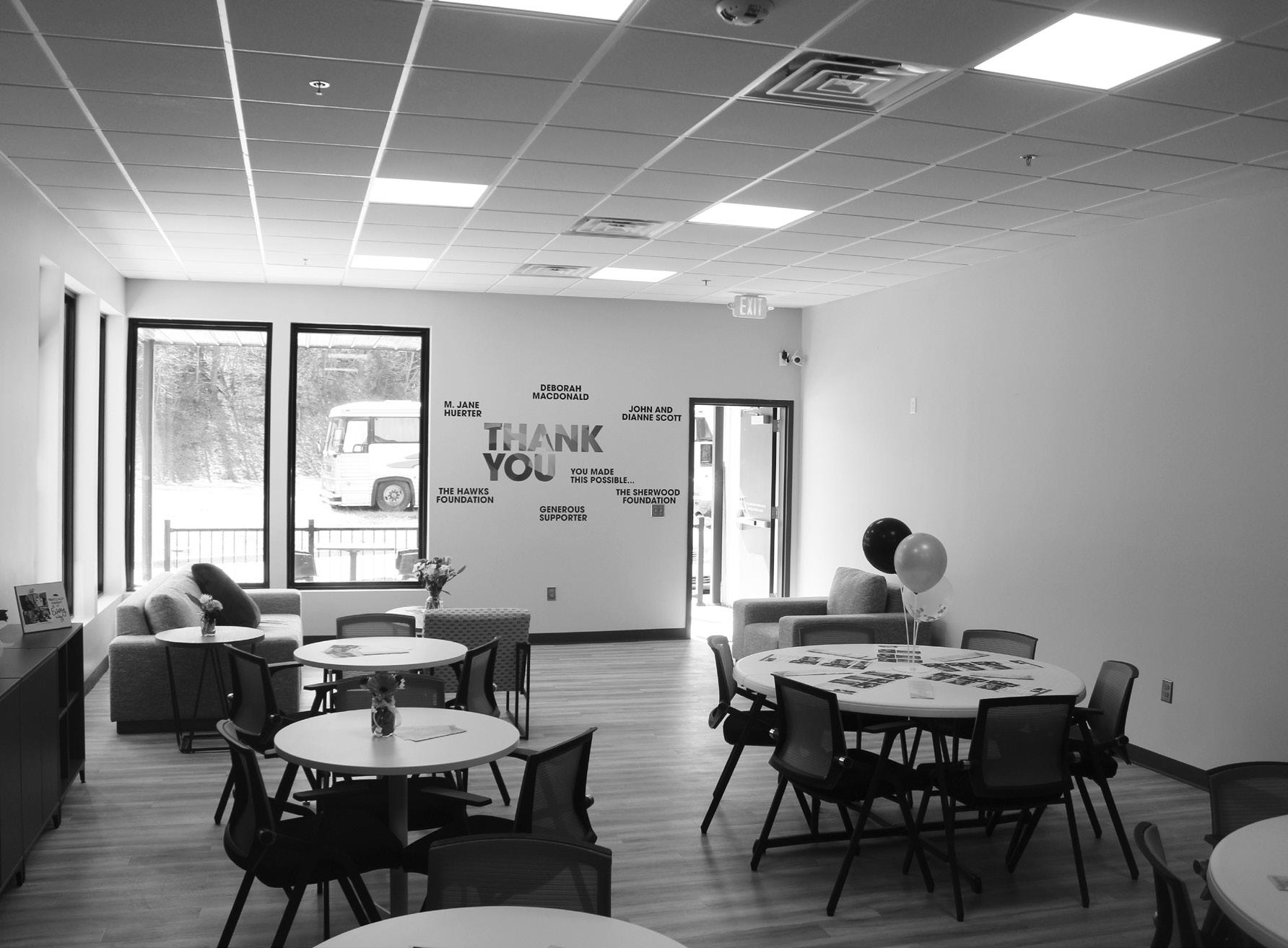
The Intercultural Senior Center (ISC) will be celebrated 15 years in the community serving all older adults. The ISC open house was on March 19 as they unveiled the Room of Colors. The Room of Colors is a unique program designed to provide seniors with a safe space to enjoy social engagement and mentation stimulation.

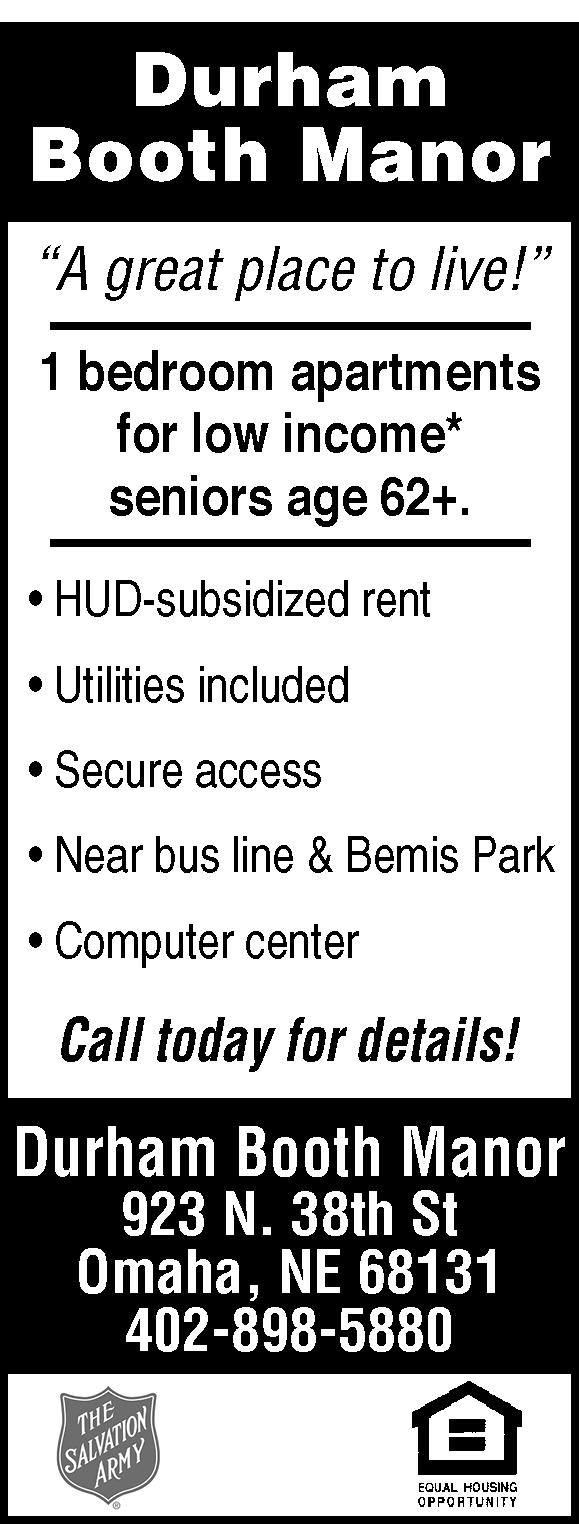




Delivering hot meals on a cold day, a special conversation between friends, helping a child learn how to read, shoveling snow from a driveway, making sure a long-term care facility resident is enjoying the best quality of life possible, and sewing blankets/quilts for residents and toddlers.
These are just a few examples of the important work being done in the community by the men, women, and children in Douglas, Sarpy, Dodge, Cass, and Washington counties who volunteer in programs sponsored by the Eastern Nebraska Office on Aging.
Last year, ENOA’s volunteers provided over 92,500 hours of service worth the equivalent to 45 full-time employees.
In April, National Volunteer Month is being celebrated by ENOA and millions of Americans to thank the volunteers, recruit new men, women, and children into these vital programs, and encourage volunteerism throughout the United States.
“Collectively and individually, our volunteers are making a tremendous difference for more than 1,000 individuals in our region,” said Mary Parker, director of ENOA’s Volunteer Services division.
“Each day, our volunteers step back from their busy lives, generously offering their time to improve the quality of life for someone else. The value of their contributions is immeasurable, and we’re truly grateful for these exemplary role models of service.”
ENOA’s Meals on Wheels program provides more than 200,000 hot meals to homebound older adults annually. Many of those midday meals are delivered by volunteers from the community and local businesses.
Additional volunteers are needed to deliver meals in various parts of the Omaha, Bellevue and Fremont areas. Drivers are contacted each Wednesday to see if they’re available to help the following week.
ENOA’s Ombudsman Advocates visit area long-term care facilities and assisted living communities two hours each week to make sure the residents are safe and being cared for properly by the facility’s staff.
Volunteers of all ages provide services designed
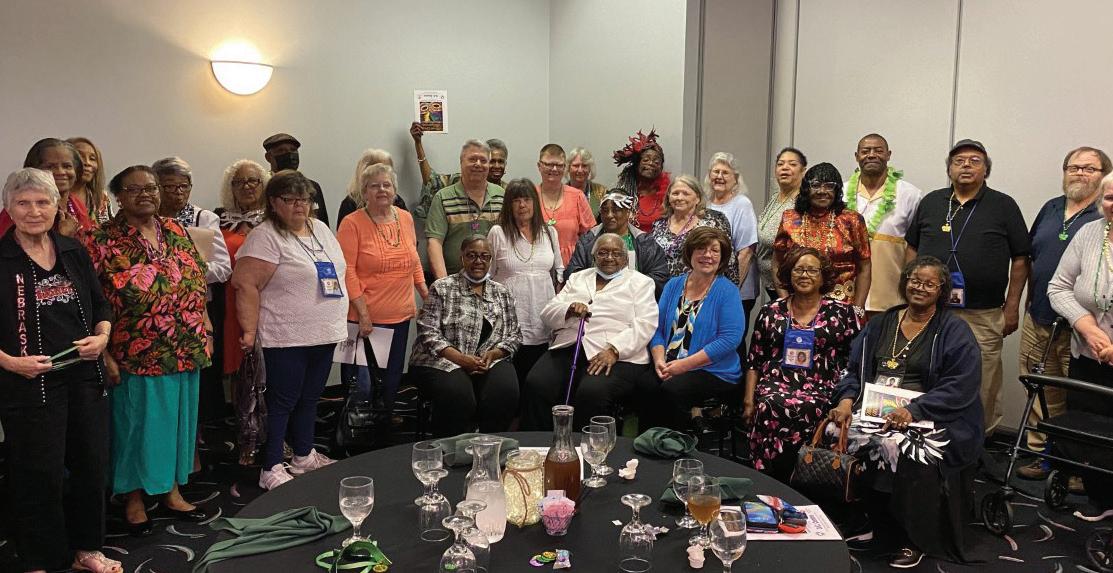
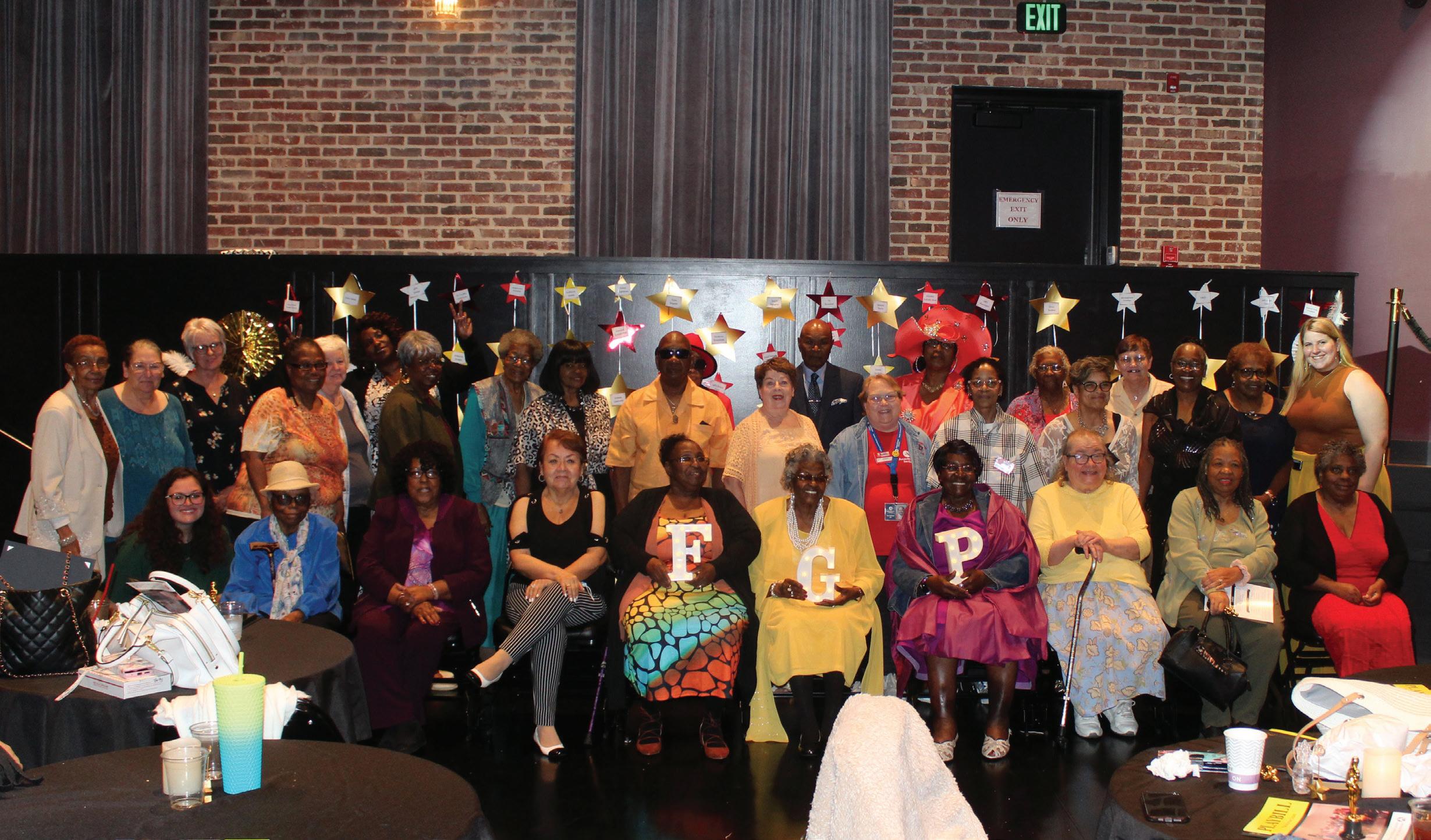
to keep older adults living independently at home for as long as possible through ENOA’s SeniorHelp program.
The services include shopping for and delivering groceries, yard care, Meals on Wheels delivery, delivering bags of fresh produce, companionship, transportation, minor home repairs, and other household assistance.
Each December, SeniorHelp volunteers deliver hundreds of holiday gifts to ENOA clients in a project that reflects the best of our agency and community. SeniorHelp volunteers come from all backgrounds, occupations, education, experience, and connection to our community. They become
donors, ambassadors, advocates and have vast community networks that have far reaching benefits to our agency and those we serve.
Funded by AmeriCorps Seniors, ENOA’s Senior Companion Program (SCP) features volunteers who provide support and friendship to vulnerable, often isolated older adults in the clients’ homes. Additionally, these volunteers provide transportation when needed and respite to care givers. Senior Companions talk, play games, and get moving with their clients to help curb loneliness.
Also funded by AmeriCorps Seniors, the Foster Grandparent Program (FGP) places volunteers in schools, Head Start programs, and
child development centers to help youngsters needing special attention. Foster Grandparents provide that extra attention to the kids to help their physical, mental, emotional, and social development.
For September 11th day of service, the Senior Companion Program and Foster Grandparent Program made care packages for emergency responders with items that were donated by ENOA staff.
The packages were delivered by volunteers to fire stations throughout the service area. And for MLK Day in January, the programs collected over 120 items for the Blair Food Pantry.
ENOA’s Volunteer Con-
nect Program matches older volunteers with private and non-profit agencies to provide volunteers in the community. Volunteers create greeting cards of encouragement for residents of skilled care and assisted living facilities, individuals receiving Meals on Wheels and students of Boys Town. Volunteers generously donated time and items they created such as hats, blankets and scarves to organizations in need.
Please join ENOA as it honors and recognizes these special men, women, and children during National Volunteer Month.
For more information about becoming an ENOA volunteer, please call Parker at 402-444-6536.